Racist comments toward Guelph Gryphons women’s rugby player under investigation

A&R trying to identify spectator responsible
Rory Stinson
Senior Sports Editor
This story first appeared online on Oct. 3.
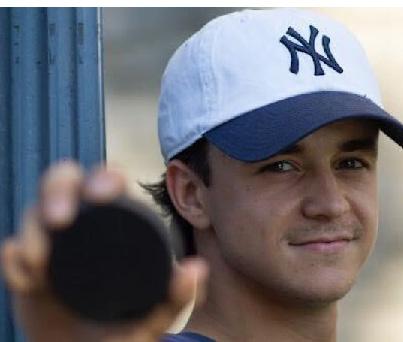
An investigation is underway after racist comments were directed towards a visiting rugby player.
At the Sept. 23 Women’s Rugby home game against the Guelph Gryphons on Nixon Field, officials were notified of a spectator making racist comments towards a visiting player.
Though Athletics and Recreation (A&R) reported steps have been taken to identify the individual, no updates have been released to the public stating the individual has been identified.
According to a statement from Linda Melnick, executive director for A&R, posted to the A&R website on Sept. 28, an investigation to identify the spectator is ongoing.
“Harassment and discrimination of any kind are unacceptable, and
have no place in sport, on our campus, or in our community. A&R and the Queen’s Women’s Rugby program have zero tolerance for racism,” Melnick said in a press release. “We sincerely regret this happened at a game, and we acknowledge these incidents cause severe harm to many members within our
Sexual violence response service sees requests surge 52
Complaints down 8 per cent since last year
Sophia Coppolino
Senior News Editor
Queen’s University’s report on sexual violence revealed a significant increase in requests for Sexual Violence Prevention and Response Services (SVPRS) last year.
Queen’s released its fifth report on provincially mandated sexually violence data to the Board of Trustees on Sept. 29. Students filed 26 complaints of sexual violence last year, where sexual harassment made up 22 of the complaints.
“What struck us was the scope of commitment and complexity of it. Sexual violence treatment has to be highly individualized thus we have developed an appreciate for that,” said Nancy Evans, executive director (corporate affairs and
QUEEN’S RANKED 12TH IN CANADA
Times Higher Education world ranking unchanged in five years
Sophia Coppolino Senior News Editor
Queen’s overall world ranking remains stagnant over the last five years.
Of 1,904 universities worldwide, Queen’s placed between 251 and 300 in the Times Higher Education (THE) Worldwide University Ranking, a similar standing to last year.
per cent
strategic initiatives) at Smith School of Business, at Board of Trustees.
Board members commented on the six reported cases of sexual exploitation, an offense which hasn’t seen any complaints over the previous three reporting periods.
The reported statistic skews the picture of sexual exploitation at Queen’s because of the format of the statistics required by government guidelines, Provost Matthew Evans explained.
“Technically it went from zero to one, but because there were six people, we were required to report it,” Evans said at Board.
The ministry requires universities to record every incident and complaint made by students. At Queen’s one complaint may be captured within multiple offense counts because of the nature of the incident.
Sexual exploitation involves taking advantage of another person through non-consensual or abusive sexual control
broader community.”
In the statement, A&R committed to increasing staff, security, signage, and announcements to ensure all spectators are in compliance with the OUA Spectator Code of Conduct.
The OUA Spectator Code of Conduct requires spectators refrain from verbal or physical harassment directed towards anyone attending, playing, coaching, or officiating a game. Failure to comply with the Code of Conduct will result in an ejection from the game and prohibition from attending future games.
“We reaffirm our ongoing commitment to Indigenization, Equity, Diversity, Inclusion, AntiRacism, and Accessibility (I-EDIAA)
according to the Ontario Ministry of Colleges and Universities. This includes distributing, recording, or photographing people involved in sexual acts without their consent.
Between May 2022 and April 2023, 337 individuals contacted the SVPRS, 236 of whom were students. During the previous period SVPRS received a total of 221 requests for service.
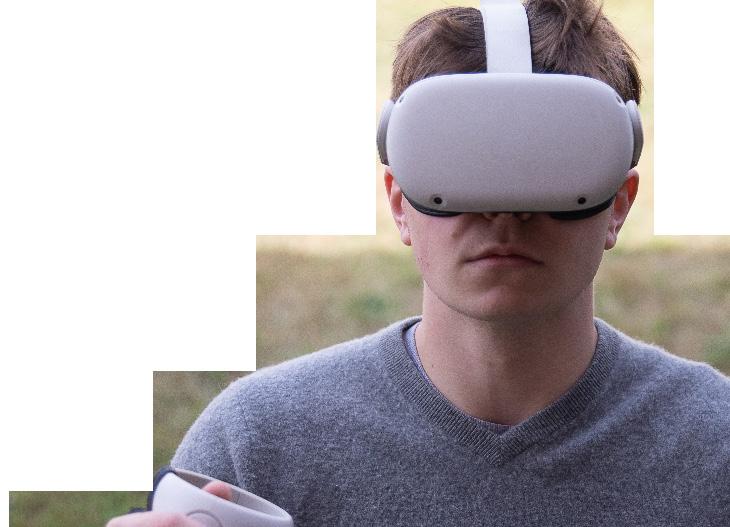
In response to requests, the SVPRS team logged almost 1,500 actions. Actions included consultations, referrals, and providing individuals with supporting documentation.
“[Requests include] the number of people coming to the office and asking for information or support for a variety of things. It could be ‘I need a referral to student wellness, or I need information about my




to help ensure the safety and security of A&R participants, and enact purposeful change and positive shifts in values, beliefs, and practices to foster an inclusive and welcoming environment for all,” Melnick said.
Anyone with information is urged to file a harassment and discrimination report through Queen’s harassment and discrimination reporting system.
A&R said they’re in contact with Guelph Athletics to ensure all necessary steps are taken to properly conduct this investigation. Melnick encouraged Queen’s students affected by this incident to visit Student Wellness Services.
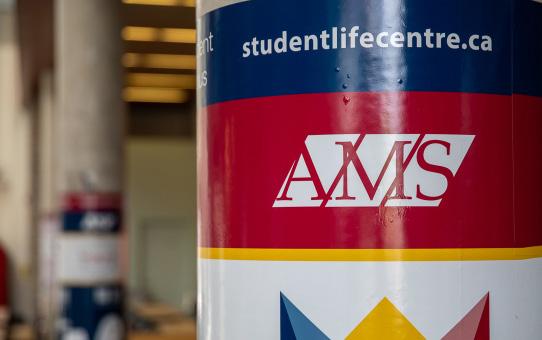
options, or I need academic considerations, or I want to make a complaint.’ It’s all of those things,” Barbara Lotan, SVPRS coordinator said in an interview with The Journal.

The SVPRS responded to 52 requests for assistance accessing academic accommodations and 18 requests for documentation supporting academic appeals.
Students don’t need to make a formal complaint to access SVPRS supports. Complaints are put in writing which initiate an investigation by the University.
Under the current policy, the University doesn’t process anonymous complaints.
The external review by the Canadian Centre for Legal Innovation in Sexual Assault Response of Queen’s SVPR policies
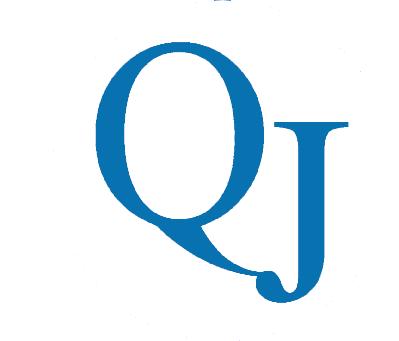
Of the top 20 Canadian universities in the rankings, Queen’s placed twelfth, falling behind University of Calgary and Western University.
The THE World University Ranking grades universities on five indicators: teaching, research environment, research quality, industry, and international outlook. Based on the indictors, THE assigns universities scores out of 100, allowing them to rank universities worldwide. Overall, universities placed in the 251 to 300 bracket averaged between 53.1 and 55.8 points across the five indicators.
Queen’s scored below 37.5 on teaching and 38.0 on research environment indicators. The teaching indictor accounts for Queen’s teaching reputation, staff to student ratios, and institutional income. The research indictor considers the University’s research reputation among academics, research grants, and number of peer-reviewed publications.

The highest-ranking programs at Queen’s were pre-clinical health and law. THE ranked these programs higher due to higher scores on international outlook and industry income.
See Times on page 2
and procedures concluded in February. The external review found Queen’s policy and procedural response to sexual violence to be rigorous and highly professional.
The external review made 21 recommendations to Queen’s. Recommendations include changing the language for students disclosing incidents of sexual violence from complainant to reporter.
See SVPRS on page 3
queensjournal.ca @queensjournal @queensjournal @thequeensjournal @queensjournal
LIFESTYLE Get your horoscope, and attempt our Taylor Swift crossword PAGE 15 TECHNOLOGY Not just video games: the wide applications of extended reality PAGE 12 FEATURES Student government, or corporation? Working at the AMS PAGE 8 SPORTS Aidan’s
a
PAGE 14
Angle: What it means to be
team captain
Those with information are encouraged to come forward.
Q ueen ’ s u niversity — v ol . 151, i ssue 9 — F riday , o ctober 6, 2023 — s ince 1873
journal
PHOTO BY JOSEPH MARIATHASAN
Situated on the traditional lands of the Anishinaabe and Haudenosaunee peoples.
the
Queen’s updates harassment and discrimination policy
Complaints go to new VP portfolio
Sofia Tosello & Meghrig Milkon Assistant News Editors
Queen’s streamlined their harassment and discrimination policy.
The updated Harassment and Discrimination Prevention Response Policy was presented by the University Culture Committee and approved by the Board of Trustees during their meeting in Richardson Hall on Sept. 29.
With the creation of the Vice-Principal (Culture, Equity, and Inclusion) portfolio, Queen’s has created a new Complaints and Investigation Office. Led by Stephanie Simpson, vice-principal (culture, equity, and inclusion), all complaints alleging harassment and discrimination will be routed through the new office.
The University said the changes include centralization of complaints and allowing the complaints to be reviewed by individuals understanding of Indigenization, equity, diversity, inclusion, accessibility, and anti-racism on campus, according to a report to the Board of Trustees.
Changes come as 29 per cent of students reported experiencing harassment and discrimination at Queen’s in 2023, according to the Shift Survey. Only five per cent of students on campus formally reported incidences of harassment or discrimination to the administration.
The Intake and Assessment Team, chaired by Simpson, will now determine if the facts presented in complaints warrant further investigation, deciding which administrative unit will be responsible for the investigation.
Complaints brought against students which are referred for investigation by the intake team will likely be directed to the Non-Academic Misconduct Office. The exception are medical residents, whose complaints are within the scope of the Office of Complaints and Investigations, but fall under the scope of the Resident Harassment and Discrimination Investigation Procedure.
Human Resources and the Faculty Relations Office’s role is being adjusted in managing harassment and discrimination complaint files.
The Faculty Relations Office acts as a mediator between the University and the Queen’s Faculty Association (QUFA), which represents the interest of academic staff at the University.
The policy clarified employees reporting an incident of workplace harassment or discrimination can’t rely on third parties to act as a proxy during the complaint process. All complaints must be submitted directly to the Complaints and Investigation office to classify as a formal complaint.
QUFA declined The Journal’s request for comment as they didn’t have time to review the updated policy in time for publication.
The new policy clarifies investigations into discrimination cases don’t apply to situations where the University is building admissions pathways for individuals part of equity-deserving groups protected by the Ontario Human Rights Code.
The University has legal responsibility under The Ontario Human Rights Code to prevent and address harassment at the University.
The update explains while harassment, sexual harassment, and workplace harassment often relate to a repeated patterns of behaviour, a complaint can be filed after one occurrence.
Senate debates slashing budgets and seducing international students
$62.8 million financial deficit leaves Senators searching for solutions
Mikella Schuettler Assistant News Editor
Tension was in the air at the first Senate meeting of the year.
Senators convened Oct. 5 to discuss budget cuts, gendered violence on campus, and increasing the enrollment of international students.
All motions passed, including updates to the Academic Integrity Policy. The use of AI in classrooms will be left to the discretion of professors.
For the first time, an open questions period was held at the end of the meeting to increase Senate engagement. However, there was no shortage of discussion as Senators were primarily concerned with the $62.8 million deficit described in the Provost’s report.
All eyes were on the new Provost Matthew Evans who fielded questions about the deficit, enrolment rates, and recruitment of international students.
Principal Patrick Deane’s verbal report began the meeting with a daunting message to Senators in reference to ongoing political movements to ban topics and books from schools in North America.
“Public confidence in places like [Queen’s] has declined quite significantly in the last five or six years. Queen’s is not unusual, the whole sector is like this, and those declines map uncannily onto shifts in the cultural climate,” Deane said.
Financial Deficit
Queen’s is currently running a $62.8 million operating budget deficit. The deficit is being covered by reserves accumulated over previous years. A hiring freeze instituted in May has attempted to stem the flow of money out of the University, but it left some faculties grasping to make do.
Both Deane and Evans blamed the financial deficit on Premier Doug Ford’s tuition freeze and 10 per cent tuition cuts across the board in 2019.
“The causes of these challenges are very much to be found in the realm of public policy,” Deane said to Senate.
Senators want to know what the University is going to do to maintain the student experience, and how the deficit is being shared across faculties. For Arts and Science Faculty Senator Samantha King the top-down mandates to balance the budget coming from higher up in the administration, warranted an explanation.
“We're looking at the decimation of instruction capacity and therefore the undergraduate educational experience,” King said.
Emils Matiss, graduate student senator, noted since the hiring freeze, two administrators in his faculty have left, leaving one administrator to do the work of three.
In response to both senators, Evans stated the University can’t sustain a budget deficit, and the actions being taken are logical. He acknowledged that Queen’s will need to be more strategic moving forward.
Recruitment of International Students
Senators were eager to find solutions to the financial deficit, with many
encouraging the recruitment of more international students.
According to Evans, international students make up roughly 10 per cent of the undergraduate student body but account for two thirds of tuition revenue. In recent years, Queen’s has seen a drop in international students, exacerbating Queen’s ongoing financial stress.
Arts and Science Student Senator Yuxuan Zhao suggested collaborating with international schools in China to recruit more international students to Queen’s. Evans disagreed.
“The biggest growth for us is going to be outside China,” Evans said.
Arts and Science Faculty Senator Stephanie Dickey encouraged the University to focus recruitment efforts on American students, as they’re Canada’s closest neighbours and Queen’s tuition costs are comparatively cheaper.
“[American students] seem to be our largest potential pool, and perhaps the easiest to assimilate of students from elsewhere,” Dickey said.
Not all senators were supportive of recruiting international students. Engineering Student Senator Lucas Balog raised concerns about housing availability if enrolment numbers increased. Staff Senator Karalyn McRae is unsure if Queen’s has enough support for international students when they arrive in Kingston.
The University has hired a consultant to guide their international recruitment and, according to Evans, is looking towards hiring more international faculty to internationalize Queen’s. Evans wants to assure Senators that recruiting international students isn’t a purely economic endeavour, but a way to diversify the campus.
The Possibility of Violence on Campus
Since the hate-motivated stabbing of a University of Waterloo Gender Studies professor and students in June, faculty at Queen’s have felt the impacts of the event radiate through the community.
Arts and Science Faculty Senator Jacqueline Davies explained to Senate that students and professors don’t feel safe on campus, given increasing homophobic and transphobic violence on and around university campuses. Davies referenced the Montreal Massacre as a time when faculty at universities felt similarly.
“It seems to me the University hasn’t adequately addressed the impact of that violence on equity issues specifically,” Davies said.
For Davies, equity-deserving groups feel the threat more significantly. Students have reached out to Davies contributing their absences in classes are because they don’t feel safe on campus.
“This was specifically in relation to the anti-trans protests,” Davies said, in reference to the recent 1 Million March for Children protest in Kingston.
Davies directed her question to the Senate Educational Equity Committee, which as of yet doesn’t have a chair, requesting they focus specifically on how rising violence related to anti-LGBTQ+ groups is affecting equity deserving groups on campus.
“It’s really distressing when we’re told things are being done and we should feel safe,” Davies said.
Arts and Science Faculty Senator
Philip Jessop proposed the University compile a list of best practices including protocols or numbers to call, for staff to use in case of sudden violent events on campus. He proposed the list be easily accessible on Queen’s website, so faculty are able to handle sudden situations to the best of their ability.
At the end of the discussion, Principal Deane acknowledged it is a difficult time to be working in education.
Nothing has changed since Deane called Times Higher Ed ranking ‘depressing’
... continued from front
Of the five indicators, Queen’s scored 94.0 on industry, which contributed less than teaching and research to universities’ overall score. Industry income and patents citing a university’s research impact the overall industry score. Queen’s is on par with Canadian and international universities in the top 20 for industry.
In 2020, Principal Patrick Deane called Queen’s THE ranking “depressing” at the Board of Trustees. Deane expressed concerns Queen’s wasn’t competing with other Canadian universities.
Leading Canadian universities this year are University of Toronto, University of British Columbia, and McGill University, which all ranked within the top 50 universities worldwide. University of Toronto was the highest ranked Canadian university in the 18th place overall with 88.6 points.
In a separate ranking, the THE Impact rankings, Queen’s ranked third worldwide. The impact ranking measures universities contributions to the United Nations Sustainable Development Goals (SDGs).
CORRECTIONS
AMS publishes commission budgets for 2023-24 year
An earlier version of this story incorrectly stated in the first sentence and headline that the AMS published commission budgets for the first time in two years. The AMS did in fact publish commission budgets in the last two years.
Graduate student labourers are workers too
A previous version of this story contained information that did not meet The Journal‘s standard for verification.
Making bank as a student nail technician
An original version of this story said Zhang offered acrylic nail services to clients as part of her business. Zhang only offers gel nails. The story also featured an incorrect version of Zhang’s slogan.
Incorrect information appeared in the Sept. 22 issue of The Queen’s Journal The Journal regrets the error.
News 2 • queensjournal ca Friday, october 6, 2023 NEWS
Lack of sanctioned events sends students to the streets
SVPRS stats
... continued from front
Another recommended change was publishing more detailed information on sexual violence complainants and outcomes at Queen’s while maintaining anonymity and formalizing the process for sexual violence disclosures in residence.
Changes to policy have yet to undergo a consultation process with students. SVPRS is hosting consultations this fall and Lotan encouraged students to participate in student surveys and the fall semester consultations.
“If student voices aren’t there, then we weren’t getting the right feedback. Those are the places where I think students can and should participate as much as they can and really attend the events and share amongst students,” Lotan said.
Recommendations on the services side, such as communications to students from the student conduct office, have already been implemented. Now communications to student respondents have more accessible language with less legal jargon.
Community members express concerns about Queen’s Homecoming events
Allie Moustakis Senior Lifestyle Editor
With Homecoming quickly approaching, concerns are surfacing about the lack of sanctioned events.
Queen’s Homecoming is set to take place from Oct. 20 to 22. The University anticipates welcoming back over 2,000 alumni, with special events planned for those who graduated in years ending in three and eight.
Many of the approved events being hosted by the University are exclusive to alumni, forcing students to find their own ways to celebrate.
In the past, students have attended large unsanctioned street parties in Kingston’s University District.
“I don’t personally think [the large street parties] are a good look for the school,” Sarah Witiuk, ArtSci ’13, said in an interview with The Journal Witiuk is concerned by the lack of sanctioned events available for students. The University previously stated they don’t condone any of the unsanctioned partying occurring during Homecoming, but refuses to host events where current students and alumni can come together in a safe environment, Witiuk claimed.
“Official events organized by the University will include open houses, faculty receptions, varsity sporting events, and special receptions for alumni returning to campus and celebrating certain milestone reunions, such as the Tricolour Guard Reception and Dinner—for alumni who graduated 50 or more years ago,” the Queen’s Alumni Association website said.
Other than the annual Homecoming Football Game taking place on Oct. 21 at Richardson
Stadium, there are few festive Homecoming alternatives to street parties for students.
Student safety is one of Witiuk’s biggest concerns when it comes to Homecoming.
Witiuk fears the lack of sanctioned events available to students, especially at night, and the lack of crowd control, will expose students to harmful situations which could easily be prevented.
At last years ‘Fauxcoming,’ Kingston Police reported multiple injuries sustained by students. Frontenac Paramedics responded to reports throughout the day, which include an individual who injured themselves after falling off a roof in the University District.
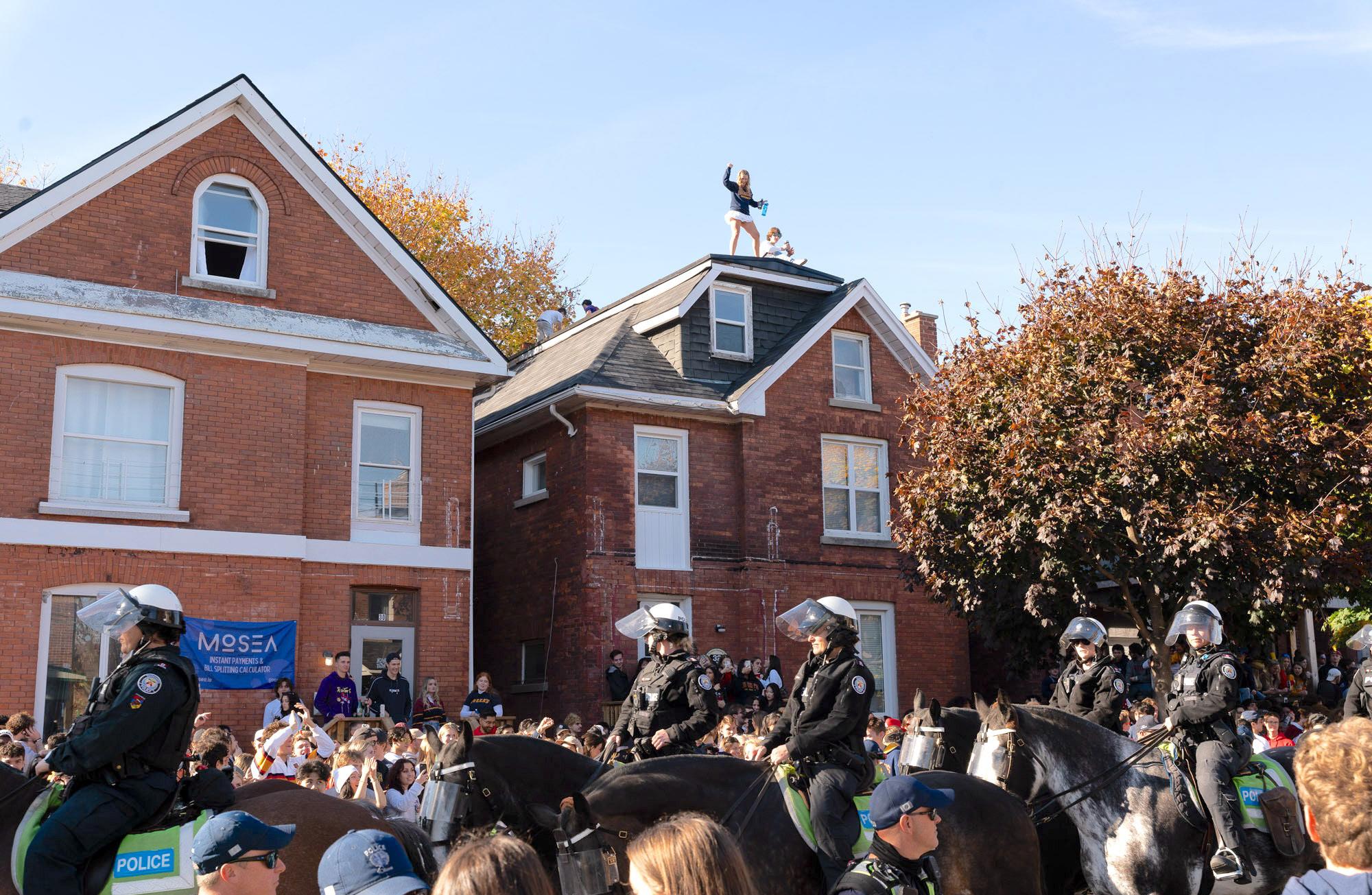
Later in the night, Kingston Police responded to reports of a collision between a pedestrian and a motor vehicle in the University District. The pedestrian was taken to Kingston General Hospital (KGH) with serious injuries.
The AMS is preparing to protect students during Homecoming. Although the AMS doesn’t host events as an alternative to street parties, they encourage students to act responsibly.
“The AMS doesn’t condone any of the unsanctioned partying that occurs around Homecoming—the choice to participate in that is one that students have to make on their own,” AMS Campus Affairs Commissioner Callum Fraser wrote in a statement to The Journal.
The AMS is taking an educational stance towards Homecoming, informing students of the physical, financial, and legal risks of participating in Homecoming parties.
The AMS intends to continue their Harm Reduction initiative in partnership with the Campus Observation Room (COR) and
Queen’s First Aid (QFA) to promote student safety.
“Like other years, the commission, in collaboration with the Commission of External Affairs, is organizing out harm reduction initiative to help curb the physical ailments associated with the ‘unsanctioned’ events that occur surrounding the homecoming celebrations, with some potential updates and new elements that have the goal of minimizing risk before it becomes a problem,” Fraser added.
The AMS’s primary harm reduction initiatives aim to mitigate illness and incapacitation associated with excessive alcohol consumption by providing an area for students participating in festivities to rest and hydrate.
“This portion of the initiative will take place at midday on the 21st of October outside of the Queen’s Centre, when the AMS will be
present to distribute drinks and prepackaged food at no additional charge,” Fraser said.
The AMS is looking to host an additional event in the days leading up to Homecoming weekend as a way to promote harm reduction efforts and inform students of their legal rights. However, the AMS is awaiting confirmation from their campus partners.
The University didn’t respond to The Journal’s request for comment on sanctioned Homecoming events for students. The University didn’t comment on The Journal’s questions related to ensuring students’ safety.
With Homecoming two weeks away, a representative for the University told The Journal information would be available at a later date.
“If [the University] wants to manage students’ behaviour, then they need to provide them with events,” Witiuk said.
“[The correspondences] are still formal and they’re still important communications, and they have to be a certain way, but I think they have a better tone,” Lotan said.
Lotan acknowledged there’s always more work to be done in improving SVPRS. She hopes to expand SVPRS initiatives in coming years.
“We’ll be responsive to student requests for what they want and need around the regular events and programming, as well as the one-off sort of things that we might do,” Lotan said.
Lotan expressed pride in the work being done at Queen’s to address sexual violence on and off campus. She cited the University requiring all first-year students to complete the learning module It Takes All of US—which covers consent and bystander intervention—as demonstrating Queen’s commitment to sexual violence prevention.
“There’s a lot of work going on all the time by a lot of people. That’s really, for me, the most positive thing, the number of people who care and are engaging with this daily,” Lotan said.
 Homecoming festivities are two weeks away, taking place Oct. 20 to 22.
Homecoming festivities are two weeks away, taking place Oct. 20 to 22.
News Friday, october 6, 2023 queensjournal ca • 3
PHOTO BY CURTIS HEINZL
Queen’s welcomes Provost Matthew Evans
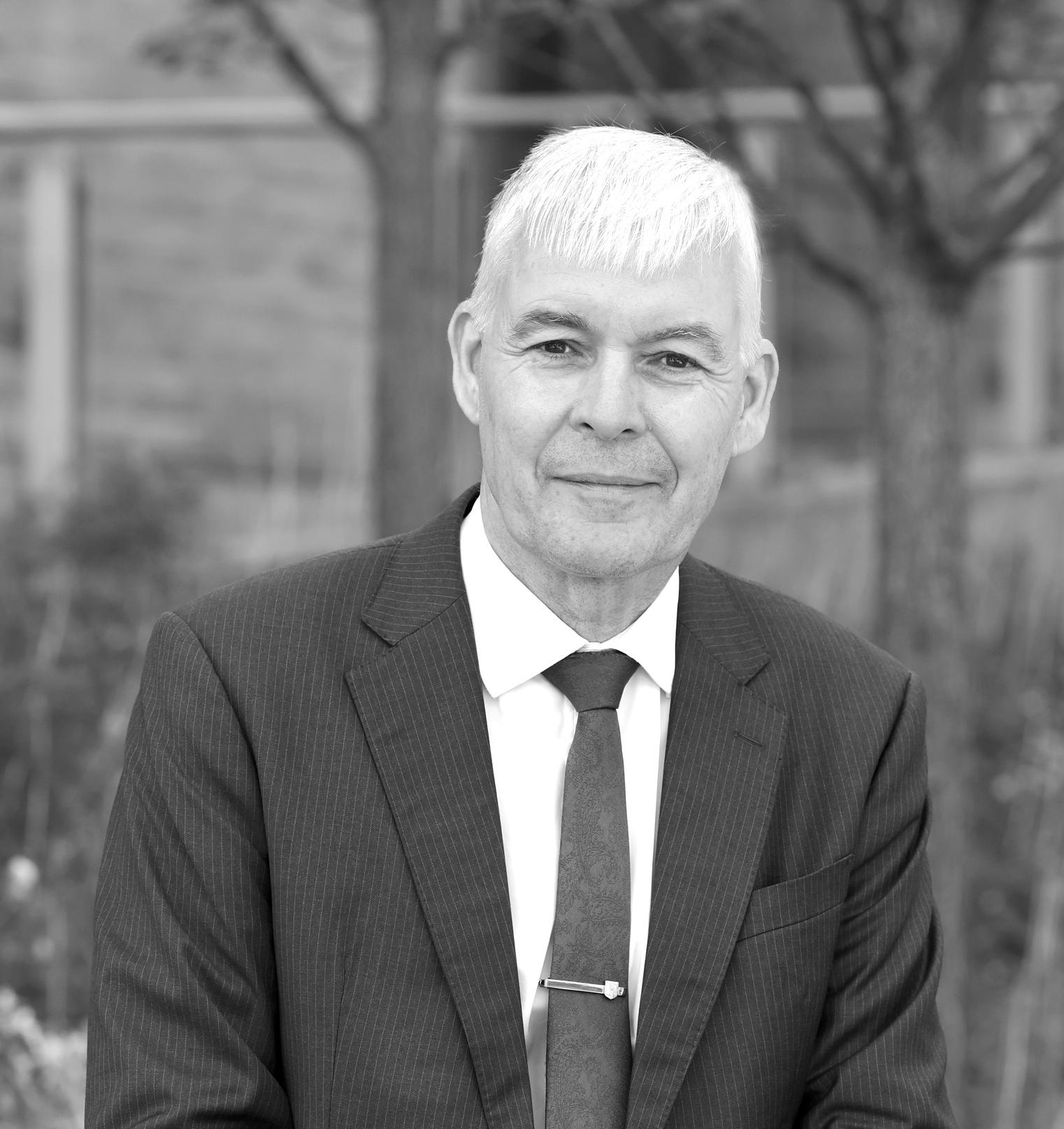
Evans began his five-year term on Aug. 1
Sophia Coppolino Senior News Editor
Provost Matthew Evans is starting his term tackling old challenges and putting Queen’s strategic plan into action.
Appointed as the provost and vice-principal (academic) for a five-year term effective Aug. 1, Evans is focused on raising Queen’s teaching and learning profile while balancing the budget.
“My job as provost, as far as I'm concerned, is to support the University's strategic initiatives,” Evans said in an interview with The Journal. “It's kind of my job to translate that strategic, high-level stuff into what actually happens on the ground.”
To achieve the goals outlined in Queen’s strategic plan, Evans wants to attract top academic talent, and raise Queen’s international reputation.
“We need to become as well-known as possible. I think it's a particular issue for Queen’s, oddly, almost because of our name. There are a lot of Queen’s things out there. We have to work out a way of making sure that when people think of Queen’s, they think of us,” Evans said.
Coming to Queen’s after serving as provost at United Arab Emirates University, Evans has experience in university leadership. He served as the dean of science at the University of Hong Kong and was the Head of the School of
Biology and Chemical Sciences at Queen Mary, University of London.
“It's not like they're all the same, but they overlap in terms of the fact that you're interacting with faculty and students to try and
produce the best kind of outcomes for both,” Evans said. “I enjoy doing that, I enjoy working with academics and students, that’s what makes the University work.”
Having met Principal Patrick
SGPS proposes $500,000 budget for 2023-24
$73,500 in financial assistance for SGPS members
Sophia Coppolino
Senior News Editor
The SGPS released their proposed 2023-24 budget.
The proposed budget was presented on Sept. 19 at the monthly SGPS council meeting by SGPS Vice-President (Finance and Services) Gaby Fekete. This year the SGPS budgeted $501,250 towards student subsidies, grants, and wages.
The goal of this year's budget was to reflect the interests of SGPS members, promote financial sustainability, and minimize under-utilized budget items, Fekete explained in an interview with The Journal. Fekete used historical data to optimize the utility of all the SGPS budget lines.
“One of the most important aspects of my role is overseeing the financial assistance program. I believe this program has such a huge capacity to help our members and has helped our members in various ways,” Fekete said.
Financial assistance accounts
for 14.6 per cent of the SGPS’s budget. The SGPS provides a couple hundred dollars per student in subsidies for students meeting criteria.
In this year’s budget, a new General Health Subsidy replaced the SGPS Mental Health Subsidy, which no longer exists. The new health subsidy provides $18,000 for mental health and other health expenses, such as medications and chiropractor visits, for students who maxed out their insurance coverage.
Covering a broader spectrum of expenses, Fekete hopes the subsidy will be better utilized.
Last year less than half of the budgeted $5,000 for mental health was used by SGPS members.
“Now our students can apply through the general health subsidy for any health-related expenses that are covered under the SGPS health insurance plan,” Fekete said.
The 2023-24 budget includes a $250 limit per applicant under the General Health Subsidy. A Gender-Affirming Care Subsidy was also introduced as a separate initiative in the budget. This subsidy provides coverage for services, medications, and products for individuals receiving
gender-affirming care.
“One example that we received recently was we had a student that was seeking speech therapy [who] was undergoing gender affirming care, so we provided financial assistance to that student,” Fekete said.
Students are eligible for up to $500 in gender affirming care subsidies from the SGPS.
Fekete highlighted the amended criteria for graduate students applying for the Emergency Student Assistance Subsidy. Students are eligible for $150 to support their academic obligations or to cover extenuating life circumstances, such as travel expenses or if there’s a death in their family.
“All of the subsidies we offer require students to submit a proof of expense,” Fekete said.
All commission events budgets were reduced this year, after $16,027.95 went unused last fiscal year.
The SGPS updated the budget for post-pandemic operations by bringing back initiative grants and increasing conference budget lines.
“What the grant program does is it offers funding to students for student-led initiatives that improve accessibility, diversity,
this area on climate change impacts,” Evan said.
An ecologist, Evans began his academic career studying bird populations in Kenya. In more recent times, his research pivoted to focus on climate change.
“As human beings we simply have to ensure that the environment, the planet on which we live, is passed on to future generations in a state that we'd be proud,” Evans said.
While he’s dreaming big, Evans was transparent about the challenges posed by Queen’s operating budget deficit. Under his portfolio, Evans is charged with managing the University’s operating budget. He said it will be hard work to balance the books over the next couple years.
“It will mean looking at the whole university and the whole way we do different things. We might have to change some of the way we do that,” Evans said.
Evans hears and understand the concerns of staff and graduate students struggling under the University’s tightened purse strings.
“There’s going to be some difficult decisions to make around that, and what the right levels are, what the right numbers of students are, and in the end, where the money comes from,” Evans said.
Deane previously, Evans felt a move to Queen’s was the natural next step. During his five-year term, Evans hopes to see Queen’s improve its standing in the U15, while further diversifying the university community, and focusing on sustainability.
Evans highlighted Queen’s commitment to the Sustainable Development Goals (SDGs) as demonstrating the impact the University can have. The University is developing a certificate program focused on the SDGs which Evans said may be up for approval next week.
“I have a personal commitment to environmental and social sustainability. That has guided a lot of the things I've been through in my life, my own research is in
and inclusion, or sustainability at Queen's. With the aim being the initiative would benefit the Queen's community as a whole and not necessarily faculty-specific initiatives,” Fekete said.
Past grants were used to run a sensitivity awareness campaign for Halloween, or to purchase recycling bins for campus buildings.
Wages made up $242,889 of budged expenses. Employee wages and benefits increased, except for student advisor wages.
Commissioner stipends saw a $4,160.04 rise, despite last year’s surplus of $16,816.80.
To enhance the financial sustainability of the SGPS, the executive invested money received in 2018 when the Society switched insurance providers. The insurance payout can only be used by the SGPS to support health and dental student coverage.
“We have invested excess funds
During his two months on the job, Evans has been encouraged by events held on campus. He reflected on the unveiling of the plinth honouring Black medical students, touched by the focus on moving forward.
On Sept. 26, Evans attended Queen’s Scholars Reception, celebrating student scholarship recipients.
“There are a lot of very engaged and high achieving students. […] That was great. A lot of energy there, and a lot of very positive things happening,” Evans said.
Having lived around the world over the past decade, Evans is settling into Queen’s and Kingston.
“I've been happy that I've come here. Queen’s has been very welcoming. One thing I would say is that this is a place where people reach out and try and make you feel welcome.”
in accordance with sustainability principles and in accordance with the promises that our members have made to not be invested in any fossil fuels, and to have invested sustainably and responsibly,” Fekete said.
The SGPS successfully applied for a campus safety grant to offer members access to trainings making Queen’s a safer place. The grant isn’t included in the budget.
“Over the summer, for example, we offered our members to sign up for an online suicide alertness training. Sixty-five of them did, and we paid for all of them to take that training,” Fekete said.
Graduate and professional students are facing financial duress and stress, Fekete explained. It’s a challenge she takes seriously.
“We care about our students deeply, and our members deeply, and we’re working always to make sure we leave Queen’s a better place for them,” Fekete said.
Dr. Matthew Evans is Queen’s newest provost and vice-principal (academic).
PHOTO BY BERNARD CLARK
News 4 • queensjournal ca Friday, october 6, 2023
AMS fall referendum statements
The Journal provides free space in its print edition and online for parties on the referendum ballot. All statements are unedited. This year, the fall referendum will take place on Nov. 2 and Nov. 3.
The following fees are up for triennial review.
Helen Tufts Child Outreach Program
The Helen Tufts Child Outreach Program is a longestablished program to assist under-resourced Kingston children between the ages of 6 and 13. Children are referred to the program from schools, Family and Children’s Services, and other sources. Each child in the program is paired with a Queen’s student to work on literacy and numeracy, social skills and to have fun. The children attend the program one day a week and have one-on-one time with their tutor, participate in group activities and have a light supper. Funds received from the AMS student activity fee are used for transportation costs, food and supplies. There is no cost to the children; this is an integral aspect of the program as many of the children are not in positions to be able to afford extracurricular activities. Throughout the program year, we see academic growth and substantial social benefits in the children who attend. The Queen’s students describe their volunteer experience as illuminating and incredibly rewarding. All in all, the Helen Tufts program builds a crucial sense of community for both the children and their tutors.
Reelout Arts Project
Fees generated through the generosity of Queen’s University undergraduate students to the Reelout Arts Project benefits not only the arts but also ensures a more respectful community. These fees are used to enable Reelout to carry out one of Canada’s largest film festivals of its kindthe Reelout Queer Film Festival. This festival held for 10-days in January/February each year showcases close to 100 films from Canada and around the world, all of which focus on gay, lesbian, bisexual, transgender, twospirit, queer + persons. These screenings are held on campus and at various other venues in the downtown core and include guest lectures, workshops and other audience engagements with visiting filmmakers. The festival is programmed by, and carried out by over forty volunteers of whom the majority are Queen’s University students. We also off numerous internship opportunities for Queen’s students to assist in the operations of the festival. Our board of directors includes Queen’s University faculty, staff, and graduate students. This community-building initiative all started as a grassroots movement run out of The Grey House (51 Bader Lane) until 2004 when Reelout incorporated at a not-for-profit and moved to our permanent office which is now a community lending library at 844A Princess St. Our library
houses over 3500 movies and books available for loan to anyone who resides in the community. Reelout also conducts community outreach screenings throughout the year including alt-frosh week and Trans Day of Remembrance as well as our Reelout in Schools program wherein we engage with local-area high school students on bullying and homo/transphobia issues. AMS fees are integral to ensuring that these services are offered to the community by helping us with artist fees, library rent, resource materials and outreach expenses.
QUCraft Queen’s Minecraft Club
QUCraft (Queen’s Minecraft Club) is one of Canada’s largest university Minecraft campus construction projects and survival server. Our community has over 1000 Minecraft players from the university and broader community working together to build the campus that we love. Our survival server is very active with many students enjoying themselves in our community. We also host fun weekly build nights and bi-weekly events such as dragon rush, manhunts, bingos, etc. QUCraft also provides a venue for other clubs, faculties, and societies to organize events and collaborate, working to better the experience of Queen’s students. Everyone is welcome to join our community at discord.qucraft.me.
Sexual Health Resource Center
The Sexual Health Resource Centre is a confidential, nonjudgmental, sex positive, pro-choice, queer positive, non-heteronormative, and feminist information and referral service for questions regarding sex, sexuality, and sexual health. We offer the sale of at-cost safer sex products and toys. Our Centre is staffed by trained volunteers who are knowledgeable about the products we sell and respond to client inquiries made in person, by telephone, and over email. Call us at (613) 533-2959 or visit us at 146 Stuart Street (LaSalle Building) Room 215! We post our hours daily on our Instagram @shrckingston.
Queen’s Global Medical Brigades
Queen’s Global Medical Brigades (QMB) is a chapter of an international non-for-profit organization, Global Brigades, that seeks to reduce inequalities and help under-resourced communities reach their health and economic goals. This is established by partnering with underserved communities globally and facilitating groups of students from chapter universities attend brigades to said countries. The chapter at Queen’s University in particular organizes annual medical brigades, and the brigade in May 2024 will be to Guatemala! This experience entails assisting local healthcare professionals operate a transient medical clinic to serve the specific health needs of a community selected by the Global Brigades
organization. A holistic model is used in that following a medical brigade to a community, other brigades are sent including those surrounding business, public health, engineering, water and more. Furthermore, sustainability is achieved by working with local community leaders on the execution of various tasks so that the services put in place by Global Brigades can continue to be managed by the community after the organization departs. Throughout the school year, QMB holds various events focused on advocating for local and Global Health initiatives, and engaging the student body in these issues. Additionally, fundraisers are held to collect donations in order to lower the costs of Queen’s students attending the annual medical brigade.
Queen’s Space Engineering Team (QSET)
QSET is a group of exceptional and passionate students at Queen’s University who share a desire to explore and compete in the world of Space Science and Space Technology. We are one of the largest design teams at Queen’s and have more than 100 active members covering most engineering disciplines. From mechanical and electrical, to chemical and financial, the competitions that QSET participates in offer a wide range of challenges. Operating as an independently run team offers members the flexibility and freedom required to successfully plan, research, and implement solutions to open-ended design problems.
QSET consists of two teams that operate independently on various technical projects: the Rover Team and the Satellite Team. Members can take on a variety of projects covering a variety of skill levels, but no experience is required to join. The only requirement to join is an interest in space and engineering design. Our goal is to provide an environment where students can develop industry transferable skills through hands-on experience!
UNICEF Queen’s
UNICEF Queen’s is a UNICEF Campus Club which supports the fight for every child’s rights across more than 190 countries and territories. As a Campus Club, we focus on raising awareness on relevant issues, hosting specialized events, and raising money to help provide humanitarian aid to children and their families. Student fees have been an instrumental part in helping UNICEF Queen’s achieve these goals and work towards a better world for children and their families globally. Each year, UNICEF Queen’s utilizes provided student fees to continue fundraising and create engaging events. Previously, UNICEF Queen’s has held paint nights, food-truck sales, education workshops and more events involving cross campus collaborations. Student fees ensure that each of these events are engaging and can help educate
the general student population; moreover, they help provide a welcoming environment proven by our high-turnout rates. UNICEF Queen’s also utilizes student fees at our annual conference to help students learn more about children’s rights; the missions of the United Nations; and to hear from different stakeholders globally.In these upcoming 3 years, UNICEF Queen’s will continue to use student fees to raise money for UNICEF, in doing so, we will also continue to educate the student and community populations on important issues that endanger children’s safety and rights.
Queen’s Asian Student Association
As the oldest cultural club on campus, the Queen’s Asian Students’ Association (QASA) is dedicated to providing a safe and welcoming community celebrating our Asian student population at Queen’s by hosting various cultural, educational, and community-building events throughout the year. These events uphold our values of inclusivity and diversity and are open to all Queen’s students in the interest of cultural education. Our events include the Ramen Social, Hotpot Night, Night Market (modelled after Asian night markets), and the SingCon semi-formal gala, dedicated to honouring Asian history, food, and culture and bringing our community together. Our work aims to support Asian students, businesses, foundations such as the Hong Fook Mental Health Association, and other Asian cultural clubs at Queen’s. Outside of our events, we promote EDII principles through our research work on our social media about Asian activists, popular culture, food, and history. To see this research and for more information on our events, follow us at @queens.asa on Instagram or @queens.qasa on Facebook!
Ban Righ Centre, Mature Student Bursary
The Ban Righ Centre is a diverse and inclusive community located at 32 Bader Lane. The Centre provides mothers and other mature students who identify as women with financial, social, and academic support that they may require when returning to formal education. We offer supports to full time and part-time students in all departments and faculties at Queen’s. We offer services to meet a variety of needs including emergency financial bursaries; free soup at lunch; referrals to other university and community resources; advocacy for policy changes that affect students; writing workshops, mentorship opportunities, and an informal speaker series that fosters a climate of shared intellectual development. In addition to providing one-onone support, the Centre houses many comfortable study spaces, and the social environment allows students and faculty to network and make lasting connections. 100% of the AMS Student Fee that we collect goes directly to students as emergency bursaries.
ASUS Orientation Fee
The ASUS Orientation fee has been increased in order to offer ensure more equitable volunteerism. Anyone who has ever participated in orientation knows the incredible amount of time and energy that goes into planning and running these events. Orientation Coordinators are truly the backbone of ASUS Orientation and deserve to feel appreciated and compensated for their time and dedication. Prior to this change, the ASUS Orientation fee went towards paying the salary of the ASUS Orientation Head Gael and Chairs, but this change would allow for future Orientation Coordinators to be properly compensated.
Arts and Sciences
Undergraduate Society (ASUS), Membership and ASURF fees
The Arts and Science
Undergraduate Society fee has helped provide students with a greater scope of work opportunities and academic resources. We have previously and will continue to put the ASUS fees towards the student body, though such as Equity grants, Professional development opportunities, financial assistance plans, etc. Open to those both internal and external to the society. ASUS will continue to use our fees towards enriching the student experience, and is open to new plans or ideas to provide a greater variety of student resources.
Dawn House Women’s Shelter
Dawn House has been supporting homeless women in Kingston and area since 1986. In early 2017, Dawn House Women’s Shelter changed its name to Dawn House Services and Housing for Women, relocated from Victoria Street to Kingston’s West End, and expanded its programs in support of marginalized, and vulnerably housed women of all ages.
In January of this year, Dawn House opened its second location on Ridley Drive in the West End where it supports two programs— Christine’s Hope, transitional housing for women and women with children, and Ridley West, a specialized emergency shelter. The organization’s vision is for all women to live in safe, affordable, accessible housing. Its mission is to support and empower women to enable them to recover. Currently, Dawn House has the capacity to support 44 women, and by next year will expand to serve 60.
Social isolation can interfere with one’s ability to sustain independent living. By bringing women together, Dawn House strives to build a strong caring community through peer support, social events, common spaces within the buildings, leadership opportunities and resident engagement in activities such as gardening and a community kitchen. For many women an achievable goal may be moving through intensive case management supports focused on
Friday, october 6, 2023 queensjournal ca • 5
Undergraduates may vote on the establishment, adjustment, or three-year renewal of these student fees
recovery and achieving a successful residency within supportive housing. For others, success may be attending College or University, or finding paid employment and moving into the community.
Dawn House provides expanded, individualized, client driven wellness-based on-site supports and programming to women living at Dawn House. It assists women with necessities including food, clothing and personal hygiene products and helps them to connect with resources in the community. Dawn House empowers women and stives to help them to recover from the circumstances that led them into homelessness in the first place. food, clothing and personal hygiene products and helps them to connect with resources in the community. Dawn House empowers women and strives to help them to recover from the circumstances that led them into homelessness in the first place.
Enactus Queen’s
Enactus is a community of student, academic and business leaders committed to using the power of entrepreneurship to transform lives and shape a more sustainable world. It is a global organization with 36 countries involved, over 72,000 members worldwide, 1,730 functional university programs and more than 550 corporate sponsors. Enactus Queen’s strives to create innovative and self-sustaining projects that advance the economic, social and environmental health of communities around the world. For more information, please visit queensenactus.ca. Every year, over 1.3 million lives are impacted by Enactus projects worldwide. Enactus Queen’s strives to improve that number, year in and year out. We seek to educate all members, regardless of faculty or program, about the benefits of social entrepreneurship and the impact it can create in the world. We are no stranger to a challenge and work to meet all issues we may face with integrity, passion, and hard work, to ensure we stay motivated and continue to make meaningful impact.
We are currently running two projects with the hopes of starting more this year. We operate Youth Success, an entrepreneurship education program for local Kingston high schools. We are helping to address the knowledge gap in the current school system, equipping the next generation with the skills to be the leaders of tomorrow. This year we’re starting E-Clo, an on-campus thrift store focused on sustainable fashion to divert clothes from landfills while educating the Queen’s communities on sustainable practices.
We also represent Queen’s University at regional and national Enactus competitions attended by all participating universities. We hire and include students from all faculties to create opportunities for interdisciplinary collaboration. Through Enactus, students get the opportunity to run a social enterprise, volunteer, create positive change in their communities, and build valuable skills in leadership, teamwork, and initiative.
OXFAM at Queen’s
Oxfam at Queen’s is a club dedicated to promoting social justice and alleviating poverty. Through various events and initiatives throughout the semesters, we aim to raise awareness, educate, and fundraise to alleviate poverty and promote women’s rights. Our club provides a platform for students to engage in meaningful discussions, take action, and make a positive impact on both local and international communities. We strive to create a supportive and inclusive environment where all students can contribute to the pursuit of a more equitable and just world. While our club, Oxfam at Queen’s, is aligned with the mission of the external organization Oxfam, we do not work directly with them or have a formal collaboration. We independently choose projects to fundraise for and support based on our own research and evaluation. Our club operates autonomously, designing and implementing initiatives that align with the broader objectives of Oxfam. Although we do not have a close collaboration, we are committed to promoting Oxfam’s values and principles of poverty alleviation and social justice. Hence, we do not work with any external organizations.
Four Directions Indigenous Student Center
The Four Directions Indigenous Student Centre (FDISC) serves as a home-awayfrom-home for Indigenous students at Queen’s. FDISC provides holistic and culturally relevant services to Indigenous students, supporting them academically, culturally, mentally, emotionally, spiritually, and physically. These support services include advising, counselling, tutoring, community building, and cultural programming (beading, drumming, sharing circles, Elder sessions, sacred fires, and feasts).
Queen’s Project Red
Queen’s Project RED, founded in 2010, is a student-driven organization at Queen’s University committed to promoting a healthy lifestyle while raising essential funds for the Heart and Stroke Foundation of Canada. Our flagship event is an annual charity fashion show, which captivates audiences and serves as a significant source of donations for the Foundation.
With a deep commitment to making a positive impact, Project RED has evolved into the largest university fundraiser for the Heart and Stroke Foundation in Canada. Over the years, we have raised over $100,000, demonstrating our effectiveness in both raising awareness and funds for heart disease and stroke, prevalent health issues in the country.
Inclusivity is one of our core values. We offer a wide range of positions, welcoming students from various academic years and fostering teamwork and collaboration. Rigorous financial management and strategic planning ensure the responsible allocation of resources, guaranteeing the sustainability of our initiatives.
Beyond fundraising, we actively engage with the Queen’s community. We host events like “Run Your Heart Out,” Zumba classes, and “Spin It Forward,” promoting physical activity and well-being among students and staff. Additionally, our Pop-Up Market initiative supports student designers and local entrepreneurs, strengthening our sense of community.
Through these endeavors, we aim to create a positive and lasting impact on the Queen’s community. Our dedication to health awareness, inclusivity, and community engagement drives us forward. Queen’s Project RED, with its decade-long history, continues to be a driving force for positive change, firmly rooted in its mission to promote a healthy lifestyle and support the fight against heart disease and stroke. ***
The following fees are seeking establishment or increase.
Queen’s Feminist Leadership in Politics (QFLIP)
Last year we received a total of $3,898.08 in AMS student fees. This money was put towards creating an accessible and equitable conference. This includes choosing a venue that can offer catering options that can accommodate all dietary restrictions, as well as keeping ticket costs as low as possible for delegates. Any money that we get from the student fee will go toward reducing the ticket cost and hopefully this will help combat the financial barriers that delegates may face. This year we are also hoping to provide more networking opportunities within the Queen’s Community. This year, our Fall Taster has been reworked to a Fall Mixer. We want to encourage more collaboration across related clubs. We hope to put on an event that can bring together students and provide them with meaningful experiences to network and learn from each other’s experiences. The fee increase would also help support this effort. Lastly, we want to offer EDII training to our executive team, this is an effort being spearheaded by our EDII team. We want to support and encourage this effort to further educate our team and we believe this money would also be well spent assisting in creating a more inclusive and equitable team environment.
Kaleidoscope
Kaleidoscope is an AMSratified club established in 2013 as an outreach program for at-risk youth in the Kingston community. Our program pairs over 100 Queen’s student volunteers with elementary school students in Kingston who face a wide range of challenges. Our club members are passionate about making a difference in young lives, and we provide the best experience possible for the “Little Buddies” (local youth) by ensuring that our “Big Buddies” (Queen’s student volunteers) are well-prepared to work with this vulnerable population. The program begins with the six elementary schools we work with, where teachers nominate students whom they have identified as at-risk and feel could benefit from our one-onone peer mentorship program.
Kaleidoscope’s executive team then pairs each Little Buddy with a Big Buddy based on various factors, including shared interests and experiences. Throughout the school year, each volunteer engages in weekly one-on-one buddy visits at a designated elementary school, during which they engage in fun activities tailored to the Little Buddy’s interests and help them with school work. Every year, teachers from the schools we work with repeatedly note the visible impact that the buddy visits have on the young students’ academics and social well-being. We provide our Big and Little Buddies further opportunities to develop strong bonds by hosting semiannual club-wide events. Kaleidoscope has hosted a Sports & Crafts Morning (in the fall) and a Carnival Morning (in the winter) every year since 2014 (except for during the pandemic) and has received a plethora of positive feedback from the children, the children’s parents, and our volunteers. These events also allow Kaleidoscope to foster community among club members. Ultimately, Kaleidoscope has made and continues to make lasting positive impacts on the Kingston community.
Queen’s University Muslim Student Association (QUMSA)
The Queen’s University Muslim Students’ Association was established in 1963 and since then aims to provide a community for all Muslims across Queen’s. QUMSA achieves this by providing Muslims with spiritual support and with resources across campus, like chaplains and prayer spaces. Additionally, QUMSA organizes events to bring the community together and during the month of Ramadan by hosting daily iftars. QUMSA also participates in initiatives like Charity Week and collaborates with charities to raise awareness and funds for relevant causes. The Association provides a platform to foster friendship, sisterhood, brotherhood, growth and leadership. In addition, the doors of QUMSA are open to everyone and not only to Muslims. QUMSA events and activities are open to the Queen’s community at large, regardless of faith and background.
Queen’s Healthcare and Business Conference (QHBC)
The Queen’s Healthcare and Business Conference is a conference at Queen’s University that aims to highlight the dynamic healthcare industry and its increasingly integrated relationship with both the private and public sectors. It is the first student-run conference of its kind in Canada. The two day event will feature distinguished speakers, energetic panel discussions and debates, and countless networking opportunities. It will bring together passionate leaders with diverse backgrounds and experiences, and provide them with the resources to innovate for the future of healthcare.
Alma Mater Society (AMS) Clubs Commission
The Clubs Commission oversees the 300+ clubs on campus in partnership with the AMS and
the SGPS for all undergraduate and graduate students. The Clubs Commission aims to provide resources, guidance and support that clubs may require over the course of a year to carry out their mandate. The Clubs Commission is your central resource for all information on clubs at Queen’s. We’re here to help you to help you tailor your club experience at Queen’s your way, whether it be joining a club, starting one, or building on one you’re involved in. From finding grants to apply for, spaces on campus or guidance, we’ll work with you to get the answers you need. Throughout the year, the Commission will hold multiple events such as the Tricolour Open House to help your club gain exposure, workshops and modules to help you develop skills applicable to running your club, and Caucuses to help you make new connections with like-minded club leaders. This in combination with several other initiatives, projects, and programs create the commission as an integral body and service for clubs ratified under the AMS.
Queen’s Black Clubs Caucus (QBCC)
The Queen’s Black Clubs Caucus (QBCC) is a student group on campus that represents all Black clubs at Queen’s. It currently comprises CBNA, NSBE, QBAS, ACSA, QBFA, SBBA, BLSA, and QBPA. The caucus hosts monthly meetings for Black club leaders and self-identifying Black students in order to foster community, collaboration, and unity. QBCC offers support to clubs through institutional memory, passing along external funding opportunities, and space allocation. The caucus also provides a platform for advocacy when issues affecting Black students arise. QBCC has a general membership program – students who are part of this program host events that bring Black students together.
Established in 2022, the founding of The Black Clubs Caucus was our first step in unifying the Black Clubs at Queen’s. Over the last few years the number of Black student clubs has increased greatly. With this in mind, we recognized the need for better organization and communication so that we can collectively work towards our goals. In addition to the diversification of Black clubs on campus, COVID-19 greatly impeded collaboration with the new clubs and fractured connections between the ones that had already existed. To promote stability and greater resilience to future impacts, the Black Clubs Caucus was founded. Our primary goal is working together in the planning of events, in community building, and in advocating for the change we want to see on campus.
Queen’s Sports Analytics Organization (QSAO)
The Queen’s Sports Analytics Organization is Queen’s premier think tank for all things sports analytics. Established in 2018, we have solved many analytical theories, dived into current sports topics, and analyzed trading/free agency in the sports market. As a club, we have around 30 members who all share the same passion for the in-depth statistical aspects of
6 • queensjournal ca Friday, october 6, 2023
sports. Our main venture is our blog/website, where we create articles diving into the biggest stories in the world of sports. On top of this, we run coding and data scraping workshops for prospective members as well as for those hoping to advance their careers in the sports analytics industry.
Another key point of our club is providing the resources and network for those who want to enhance their analytical skills and succeed in sports analytics interviews. Our alumni network has experience at the Blue Jays and other major sports organizations. We tie all of this together by maintaining a social media presence where all our members can keep up to date on all things QSAO. We also have a following devoted to keeping updated with our content. Our plans for this year are to expand QSAO to keep up with the rapidly changing sports analytics world and maintain all of our ventures. This includes running our website/domain ownership, social media advertising, setting up workshops, hosting events and case competitions, and connecting members with the perfect personnel. social media advertising, setting up workshops, hosting events and case competitions, and connecting members with the perfect personnel.
On The Same Page at Queen’s OnTheSamePageatQueen’shas the mission to integrate literature into care settings. This includes, but is not limited to, hospitals, daycares, retirement homes and more. The organization aims to make literature more accessible in areas where it may be difficult to get literature. This is done by running semesterly book drives, where club members and volunteers go into the Kingston community and knock door to door asking if anyone has any books they would like to donate. In addition, we run one larger scale event which takes much more planning, for example, last year we ran a high school book drive competition across Ontario. The goal is to integrate literature more into the Kingston community, but also the Queen’s community, and this year we are requiring funds for these activities. The aim of acquiring a student fee is to be able to host a book club for the Queen’s community. We want to make this free of cost to join as many students may not have the money to get books, especially due to their increasing costs. Many students also cannot bring their books to university due to the limited space in student housing. The student fee would be used to create this free book club for Queen’s students, and also to help run our book drives, as we require advertisements to be placed at the houses. Overall, On The Same Page at Queen’s is aiming to get a student fee, to increase the accessibility to literature and also making it financially accessible.
Queen’s Concussion Awareness Committee (QCAC)
As a committee, we strive to bridge the gap between students and concussion resources
available at Queen’s and in the Kingston area. We aim to provide support to the community and supply students with the tools they need to make healthy choices surrounding their academics, physical, and mental health as it relates to concussions.
The Queen’s Journal
The Queen’s Journal is the student-operated, editorially autonomousnewspaperpublished by the AMS at Queen’s University. The Journal is a vital educational resource to all Queen’s students, and provides coverage of university affairs, AMS operations, university athletics, local arts events, and publishes opinion pieces by the public. As the de-facto journalism school at Queen’s, The Journal’s staff consists of over 30 staff and volunteers across all faculties and schools at Queen’s who work to publish a twice-weekly newspaper. As an incubator of journalistic talent, The Journal has alumni employed in the journalism industry internationally, working at news outlets such as The Toronto Star, The Globe and Mail, CBC, The New York Times, Reuters, and several other media outlets globally. The Journal is also an exceptional resource for students looking to venture into other industries, with Journal alumni working in industries such as big tech, law, education, academia, communications, and editing after graduating from Queen’s.
The Journal is recognized nationally for its journalistic achievement, with Journal staff routinely receiving nominations for national journalism awards, including the John H. McDonald Award and the Amnesty International Canada Media.
The Journal has also taken steps to become more inclusive in recent years, and has implemented a more equitable recruitment strategy and implemented a BIPOC advisory board to ensure sensitive coverage of marginalized and equityseeking groups on campus.
Smith Black Business Association
Founded in 2020, the Smith Black Business Association (SBBA) stands as a dynamic force within the Queen’s University community, celebrating its recent 3-year anniversary.
SBBA is dedicated to creating impactful opportunities for Black university students in the corporate world.
SBBA goes beyond being a student association; it’s a community builder, a professional development hub, and an advocate for diversity and inclusion. The organization hosts engaging events, from speaker series like the Black Youth Business Conference to exclusive networking gatherings like Black on Bay. These initiatives empower students with skills, knowledge, and connections crucial for success in the competitive corporate landscape.
Beyond professional development, SBBA fosters a supportive community through social events, creating a tight-knit network vital for both personal
and professional growth. The organization’s advocacy efforts extend beyond its members, educating the broader campus community on becoming allies to the Black community and promoting inclusivity.
SBBA’s strategic approach to financial sustainability, its commitment to inclusivity, and its rapid growth in just three years highlight the organization’s impact.
As SBBA continues to shape the careers and perspectives of Black university students, it stands as a beacon of diversity, empowerment, and community within the Queen’s University landscape.
MUSE Magazine
Conceived in CoGro as an ambitious dream scribbled on a few pieces of lined paper, MUSE Magazine emerged as the brainchild of three artistically enthusiasticstudents:“Z,T,&C.”Our first issue, named The Explosion, was launched in February 2011. The main purpose of MUSE at its very core is to exist as a tribute to the innovative, the unique, the fashion-forward, and the stylistically creative. It is a nod of gratitude to those who break the mold and expose beauty in places we may overlook in our daily student adventure.
Over the 12 years since this magazine began, MUSE has grown to have a team of 100 members, published 22 editorial print issues, and continues to be the go-to home of creativity at Queen’s University. In 2023, our team is continuing to engage in a deep reflection of MUSE’s relationship with the world over these past years. As such, our team has been working to produce a new online media platform that we believe best represents MUSE’s evolved presence as it continuously strives to push artistic boundaries and conventions.
These past two years, MUSE has been attempting to reintegrate our creative projects with our local communities. Feeling the loss of in-person connection following the pandemic, MUSE has worked tirelessly to deliver our Mini Desk concerts (which allow local student musicians to gain exposure to close to 200 students who sell out local venues like The Mansion and Clark Hall Pub), and our Launch events (which celebrate the passion and creativity that was put into our print issue). MUSE is an outlet, both physically on paper and as a brand that promotes a community of creativity here at Queen’s University.
Queen’s Model Parliament (QMP)
Since 1947, Queens Model Parliament has stood at the forefront of student-driven political engagement at Queen’s University. We have consistently provided our delegates a stage to delve deep into Canada’s parliamentary procedures. Historically ratified with AMS, the pandemic led us to carve our path independently. As we navigate this new chapter, the $0.25 student fee is our call to the student community: to invest in the legacy of the informed debate and spirited leadership development opportunities with QMP. We aspire to not just sustain but enhance
the QMP experience for all our members.
Ultraviolet Magazine
Ultraviolet, a vibrant student club based at Queen’s University in Kingston, Ontario, has been illuminating the world of creativity for over two decades. Founded in 1995, Ultraviolet has become a beacon for artistic expression; providing a platform where innovation, imagination, and audacious creativity converge. At the heart of Ultraviolet’s mission lies the unwavering commitment to fostering creative brilliance through the written word, visual art, music, and performance. The club curates and publishes Ultraviolet Magazine, an annual publication that showcases the literary and artistic achievements of Queen’s students, serving as a canvas for voices that dare to challenge conventions. Ultraviolet’s annual Open Mic night, celebrates the diversity of creative expression and fosters a sense of community among artists and enthusiasts.
Beyond the confines of the university, Ultraviolet actively engages with the local creative community, forging collaborations and expanding its reach. The club also aims to reintroduce a student fee to further enhance its ability to conduct outreach and showcase the creative talents of Queen’s University students. Ultraviolet takes pride in empowering emerging artists through workshops, seminars, and collaborative projects; nurturing creative souls, forging friendships, and exploring imaginative frontiers. It’s more than a club; it’s a movement; a testament to the power of creativity to unite, inspire, and transform. As we move forward, Ultraviolet at Queen’s University remains committed to illuminating the world with bold and daring creativity, painting the world with the vibrant colors of imagination. Join us on this remarkable journey.
Queen’s Capital
Queen’s Capital is a studentrun investment fund that takes positions in North American equities through long, short, and hedging strategies with the goal of achieving risk-adjusted returns. We are organized into 6 sector teams, as well as a macroeconomics team, that cover stocks across North America. We alsorunavarietyofpubliceventsfor the broader Queen’s Community. We aim to help students develop a strong finance foundation and thereby create superior access to career opportunities in global capital markets. Our club’s long-term vision is to educate and empower our members while engaging the Queen’s community. Firstly, we educate our members through weekly stock pitches and portfolio reviews under a unique investment philosophy. Our unique investment philosophy was designed to teach fundamental value investing principles with long positions, while allowing for flexibility and contrarian thinking when shorting and using options. This allows our members to explore unique
investment ideas and financial concepts that will help them as financial professionals. In addition, we aim to support our members and the broader Queen’s community in their professional goals. We provide a 12-week summer training program that teaches foundational investing and valuation skills, as well as internal and external coffee chat programs. We also have various networking and recruitment guides available. Lastly, we hope to engage the Queen’s Community and make finance accessible to all students. We are the only investment club at Queen’s that hires from all faculties and we also run various public events for the broader Queen’s Community, such as our annual stock pitch competition with Queen’s Women in Financial Markets (QWFM) and finance panels. Above all, our goal is to empower students to break into the finance industry, and we believe establishing an AMS fee would be a critical step in reaching this goal.
Queen’s Hellenic Student Association (QHSA)
The Queen’s Hellenic Student’s Association (QHSA), also known as the Queen’s Greek Student’s Association is a rapidly growing cultural club at Queen’s University which was originally established in 2013. Since the beginning of our time at Queen’s, QHSA has had a mission to promote Hellenic culture on campus. Our club generally holds a few events each month which aim to unify students of Hellenic descent and those simply interested in our culture. By promoting an open atmosphere and celebrating Hellenic culture, both ancient and modern, we intend to bring the true spirit of Neo-Hellenism to life amongst the members of our organization. We also hope to create and maintain a sense of community that is a great joy to participate in. Membership is not limited solely to students of Greek lineage but is open to all those who are interested in Greek culture. In turn, every member has an equal opportunity to participate in our association.
While most QHSA events are held on campus or online, and intended for Queen’s students, we also tend to help the Kingston Greek Community whenever possible. The main event that our club helps the Kingston Greek Community with is their Greek food sales. This event is hosted, planned, and executed entirely by the Greek Community of Kingston. However, QHSA helps support by purchasing food at our own disclosure, and we help markettheeventthroughourclub’s social media pages. Additionally, while QHSA is not a religious group, some members may choose to attend church together to further support the Kingston Greek Community. University can be a huge adjustment for most students. Therefore, if QHSA can provide a sense of comfort and support for Queen’s students, our goal has been achieved.
Friday, october 6, 2023 queensjournal ca • 7
Untangling the AMS as a workplace
Students have mixed views on working for the AMS
Vineeth Jarabana Features Editor
For students looking for jobs on campus, the AMS is often one of the first places they look to.
As the undergraduate student government on campus, the AMS offers students an array of paid opportunities, whether it is working at student-run businesses or on the governance side.
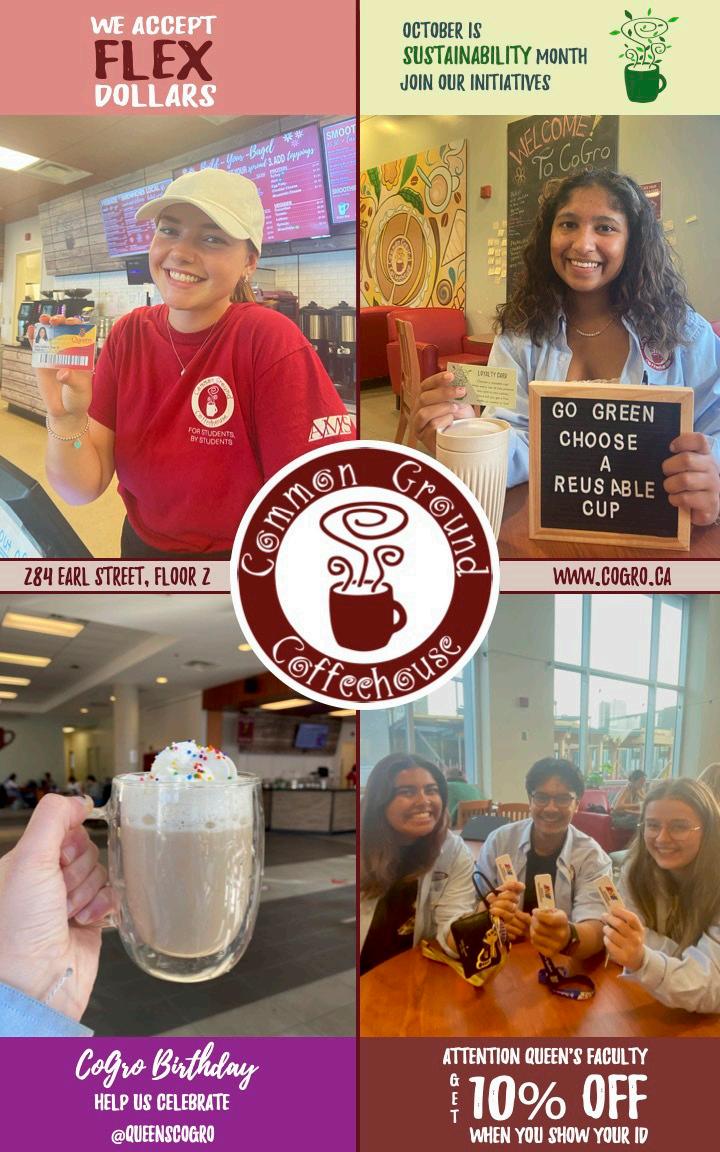
The AMS website bills working for the AMS as an excellent opportunity that allows students to build relationships with students across all years and faculties, with chances to make a lasting impact in both the Queen’s and Kingston community.
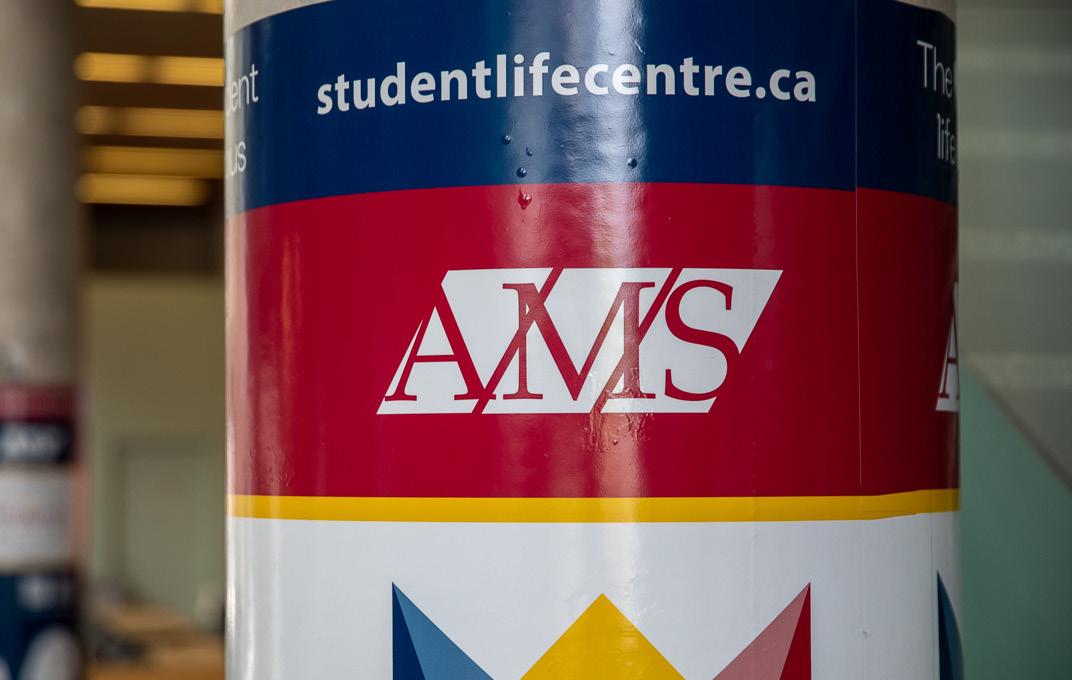
This week, The Journal spoke with three alumni about the AMS’s work environment. The alumni painted a mixed picture, describing both positive and negative experiences working for the AMS.
Ashley Cowie, ArtSci ’22, worked at Studio Q for all five years of her undergrad. She worked a range of positions, from a livestream volunteer all the way up to head manager. She strongly encouraged students to pursue job opportunities at the AMS.
Cowie mentioned students’ experiences working for the AMS primarily depends on the management team during any given year.
“I’m lucky enough I had amazing management teams when I worked there, but I think they were very laidback and they let people’s creative juices flow and fostered a very caring, learning-focused environment,” Cowie told The Journal in an interview.
In her current career, Cowie found her experience at Studio Q to be a tremendous asset. She currently works as an assistant to J. Miles Dale, a Canadian film heavyweight known for producing movies like The Shape of Water—the winner of the Academy Award for Best Picture in 2018.
“My experiences [as Studio Q’s head manager] helped when I was interviewing for that position. It was kind of an executive producing role. I was a manager at a media company and so when I was pitching myself, it was very helpful,” Cowie said.
“I think that if you have the opportunity to get involved in a service that taps into an interest of yours that you don’t get to exercise in your program, you should definitely take the leap and get involved.”
Though Cowie had a positive experience working at the AMS, this attitude isn’t universal. In August 2020, the Instagram account “AMSxposed” started documenting allegations about the working conditions in the AMS.
Through anonymous posts, current and former AMS employees alleged a toxic workplace environment, mismanagement of services, and sexual harassment.
Samara Lijiam, ArtSci ’23, was Deputy of Education at the SIC when the Instagram account ‘AMSxposed’ started publicly posting stories from students.
Lijiam had spent all five years of her undergrad involved in some capacity at the Social Issues Commission (SIC).
Beginning as a first year intern to the SIC commissioner, Lijiam eventually ended up becoming the SIC commissioner herself during her final year at Queen’s.
“It was a big call to change the toxic culture [at the AMS] and I’m not sure it’s getting better to be honest,” Lijiam said in an interview with The Journal.
As to what exactly could make the AMS a toxic workplace, Lijiam pointed to an array of factors, like cliquiness, as contributing to a negative environment.
“I think the student government at Queen’s tends to be a small bubble of the same people hiring people they know and it’s something that’s difficult to come around,” Lijiam said.
She brought up equity concerns as another factor. “There were also microaggressions [from fellow employees]. It felt very divided at times, specifically during my equity work in the AMS,” Lijiam said.
Lijiam expressed frustration with the resistance equity initiatives in the AMS faced.
“When you’re pushing for simple things like trainings around sexual violence and things like that and you have people who don’t want that to happen, it can be really discouraging as you’re also working with them.”
On the flip side, Lijiam pointed to some changes in the culture and policies at the AMS that have improved the work environment for students.
“There were things like the [proposed] whistleblower policy, a greater call to compensate students for equity work instead of relying on unpaid labour. There’s the equity commitments. We started giving away to equity clubs actively seeking students,” she said.
Though Lijiam felt there was strong allyship at the SIC when it came to the equity initiatives, she believes that it can be challenging to implement tangible improvement at the AMS due to the constant turnover.
“To be honest, the one-year turnover in student positions makes it difficult to enforce real and sustainable change because they can kind of get lost year after year,” Lijiam said.
After working at the AMS as a service staff member for two years, Avery* worked as an Assistant Manager at an AMS service—a position from which she was terminated one month before her contract ended.
Having worked as an Assistant Manager on the corporate side of the AMS two years after the emergence of “AMSxsposed,” Avery believes the AMS hasn’t done enough to address the issues
presented by the account.
In discussing specific issues with the work environment at the AMS, Avery pointed to the power dynamics when being managed by fellow students.
“As an Assistant Manager, I got to see how different power dynamics would come into play, especially when your boss is somebody your own age and you know in a social setting as well. The upper management team didn’t know how to deal with that,” Avery said in an interview with The Journal
Avery found the power dynamic issues to be especially frustrating when discussing her experiences being written up during her time as an Assistant Manager.
Avery was written up three times for disciplinary reasons—all of which she found to be unfair. According to Avery, one citation was about her coming in to work late.
“They required us to come into the store a half hour before it was open before the staff got there, but there wasn’t anything to do in that time. I think I was late one of those times and so that was a write-up. The other [write-up] was because there was a lot of snow the day prior.”
The third and final citation that led to her termination was about being late on submitting a document that she took the initiative to create.
Avery alleged that when she showed up for a shift one day, an AMS executive was present and provided a notice of termination one month before her contract officially ended.
Avery found these write-ups to be unnecessary and examples of power-tripping. In fact, she refused to sign two of the citations.
“I just don’t think the right structures are in place to allow students to not get ahead of themselves and not take advantage of the position that they’re given overseeing all of that,” Avery said.
Avery pointed to an experience at another AMS service the year prior. “[One] morning, I got a call from my friend who told me that her boyfriend had just passed away and it was a complete shock. Obviously, she was in a lot of pain so of course, the internal meeting went out the window. I’m going to stop what I’m doing and help deal with that,” Avery said.
She notified her manager after the meeting about why
she missed it, expecting them to be accommodating given her circumstances. However, Avery ended up being written up.
When it comes to how to improve the work culture at the AMS, Avery believes the AMS should start being more responsive to feedback and should switch up the permanent staff more often.
To protect themselves when working for the AMS, Avery encourages all students to ask tough questions at job interviews to make sure that they will be working for a good employer. She suggests that students get everything in writing—a recap of a meeting with their boss for example.
Since ‘AMSxposed’ stopped posting in August 2020, various AMS executive teams have made commitments to improve the work environment. Team ETC—the AMS executive team for the 2022-23 academic year—promised to foster a more welcoming workplace that prioritized year-to-year student employee retention.
In their election platform, , current AMS executive team KMV
emphasized promoting a positive work environment rooted in kindness and respect.
The platform states that “employment from the AMS does not entitle superiority but the privilege to work towards passionate goals for the student body.” In terms of putting these principles into action, the platform includes a commitment to advocacy in favour of standardizing training and respect for students’ rest periods, but didn’t expand on plans to implement these commitments.
The Journal sent media requests to the AMS on Sept. 25 to arrange an interview with head managers at AMS services to discuss the workplace environment and followed up with an email to arrange an interview with the executive team on Oct. 3. AMS Communications Director Mikayla Crawford didn’t reply in time for publication.
FEATURES Features 8 • queensjournal ca Friday, october 6, 2023
*Name changed for anonymity to protect the source’s emotional safety.
Former AMS employees discuss their time at the AMS.
PHOTO BY HERBERT WANG
Nazi occupies centre stage at Canadian parliament
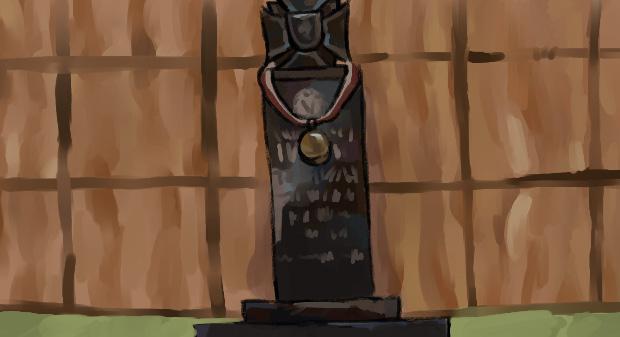
Rota’s failure to investigate the man he would honour in Parliament undermined Canada’s devotion to Ukraine and its awareness of global history on the world stage. Canadian government officials should be aware that many Ukrainian veterans from Hunka’s era would have fought on the side of Nazi Germany since it invaded the Soviet Union early in WWII.
The evident lack of research into Hunka’s history encourages the interpretation of the Canadian government as lazy, and as lacking concern for who enters its Parliament.
Rota’s resignation demonstrates accountability but isn’t a satisfactory response on its own.
Trudeau described the incident as deeply embarrassing. This reaction refers only to Rota’s impact on the Canadian government, not on those hurt by the celebration of Hunka.
Volume 151 Issue 9 www.queensjournal.ca @queensjournal Publishing since 1873
Editorial Board
Editors in Chief Asbah Ahmad Cassidy McMackon
Production Manager Curtis Heinzl
News Editor Sophia Coppolino
Assistant News Editors Meghrig Milkon Mikella Schuettler Sofia Tosello
Features Editors Vineeth Jarabana Skylar Soroka
Editorials Editor Cassandra Pao
Editorial Illustrator Arden Mason-Ourique
Opinions Editor Nahira Gerster-Sim
Arts Editor Maddie Hunt Assistant Arts Editor Suzy Leinster
Business, Science & Technology Editors Aimée Look Violetta Zeitlinger Fontana
Sports Editor Rory Stinson
The Canadian government should investigate the people it plans to honour.
Days after praising Yaroslav Hunka, a Ukrainian war veteran who fought for a Nazi military unit in World War Two, Speaker of the Canadian House of Commons Anthony Rota resigned. Rota’s recognition elicited a standing ovation from Members of Parliament in Hunka’s honour.
Hunka joined the parliamentary gallery for Ukrainian President Volodymyr Zelenskyy’s historic address, during which he praised Canada for its recent support of Ukraine and urged its continued allyship against Russian attacks. Canadian Prime Minister Justin Trudeau introduced Zelenskyy by equating the defence of Ukraine to the defence of democratic values, asserting the importance of both.
The presence of an alleged Nazi in the gallery during this interaction sullies an important gesture towards solidarity and fairness in global politics.
In Canada, Rota’s error in inviting Hunka supplanted coverage of Zelenskyy’s speech, which described to Canadians the current living conditions of those living in war-torn
Violetta Zeitlinger Fontana BST Editor
Using gender neutral language to discuss reproductive care will make healthcare services more accessible and inclusive to those accessing them.
While women may become pregnant, this is also true for certain trans men, non-binary individuals, and folks who don’t identify within the gender binary. One step in providing inclusive care to all involves using terms like “pregnant people” and “birthing parent” rather than “pregnant women” and “mother” when broadly referring to those accessing obstetric care.
Despite its simplicity, there has been significant backlash against the vocabulary swap. Many institutions have been slow to adopt the change, including here at Queen’s.
The concept is easy to understand if you take the politics out of it.
If you were a nursing student at Queen’s and referring to a group of fellow nursing students, you would call yourselves “nursing students.” If you were referring to a group of Queen’s students from different faculties, you would say “Queen’s students.” It would be inappropriate to call a cross faculty group “nursing students”—it simply isn’t representative of the group’s reality.
Gender neutral terms don’t exclude the genders that may fall within them. People can still refer to themselves as mothers or pregnant women. However, it’s inappropriate to apply those terms to a group that includes more than women.
Using ungendered terminology provides more inclusive language for queer families.
If two women are having a baby, saying
Ukraine. Zelenskyy’s address to the House of Commons wasn’t only valuable in its potential to mobilize listeners on behalf of Ukraine, but to advertise the atrocities of war—a potentially invaluable lesson amidst rising geopolitical tension.
Having to detract from Zelenskyy’s message with a reminder of long-lasting antisemitism doesn’t positively render the attainability of global unity.
Before speaking at the House of Commons, Zelenskyy appeared before United States officials as well as the United Nations General Assembly and Security Council. These appearances placed additional emphasis on his presence in Canada.
Inviting an alleged former Nazi into parliament implies federal acceptance of antisemitism and other forms of discrimination. Canada has a responsibility to support its marginalized groups.
There’s currently a monument in an Oakville cemetery memorializing and honouring Hunka’s WWII unit.
This mistake was easily avoidable.
Failing to vet an individual invited to parliament misconstrues Canada as incapable of participating in global politics. For the dignity of our nation, and all the groups residing within it, Canadian government officials must be mindful of the ideologies they not only celebrate but condone.
—Journal Editorial Board
Assistant Sports Editor Aidan Michaelov Lifestyle Editor Allie Moustakis
Assistant Lifestyle Editor Sina Sayyad
Photo Editor Herbert Wang
Assistant Photo Editor Joseph Mariathasan
Video Editor Miriam Slessor
Copy Editors Norah Kierulf Kenzie O’Day
BIPOC Advisory Board Members Anne Fu Malaieka Khan Oluwamisimi Oluwole
Staff Writers Noah Lee Uwineza Mugabe
Contributors Tatum Malone Lauren Nicol
Business Staff
Business Manager Manal Shah
Sales Representative Irina Tran Madeleine Smith
Fundraising Representative Margaret Cavanagh-Wall
Social Media Coordinator Ana Coelho
Want to contribute?
For information visit: www.queensjournal.ca/contribute or email the Editor in Chief at journal_editors@ams.queensu.ca
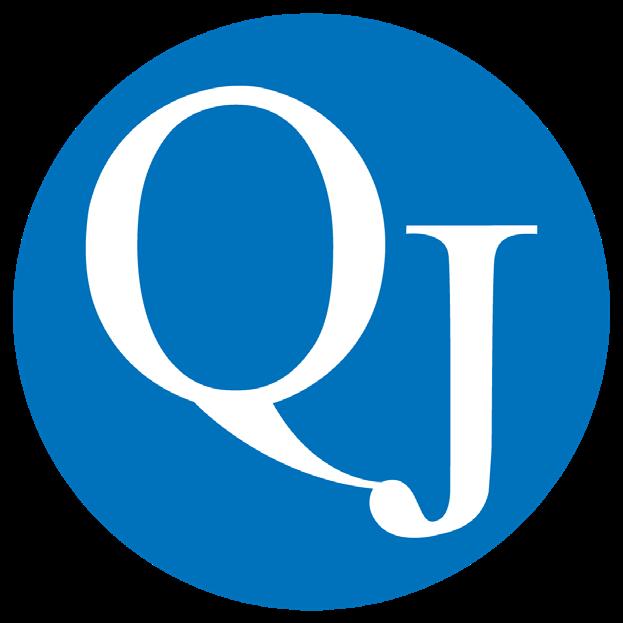
Contributions from all members of the Queen’s and Kingston community are welcome. The Journal reserves the right to edit all submissions.
The Queen’s Journal is an editorially autonomous newspaper published by the Alma Mater Society of Queen’s University, Kingston.
Situated on the traditional lands of the Anishinaabe and Haudenosaunee peoples. The Journal’s Editorial Board acknowledges the traditional territories our newspaper is situated on have allowed us to pursue our mandate. We recognize our responsibility to understand the truth of our history.
PHOTO
BY
JOSEPH MARIATHASAN
Gendering pregnancy harms doctors and patients
“woman” or “mother” in reference to the person giving birth isn’t specific enough. Perhaps in another family, the person giving birth is not the mother, and maybe someone else in the room is. Using terms like “pregnant person” or “birthing parent” gives space to these families.
A core course for students in the Health Sciences program repeatedly refers to pregnant people as “mothers” throughout its course content. This isn’t only inaccurate, but demonstrates a disregard for equity, diversity, and inclusion.
Health Sciences divides its courses into social sciences—global and population health—and those focusing on biological sciences—anatomy, physiology, and others. This separation implies physiological and social aspects of health are separate entities, when in fact they’re incredibly intertwined.
While a course on ion channels doesn’t require an in-depth discussion of social medicine, courses across the board must take a more integrated approach to health.
Lessons on disease physiology should include discussions on disease prevalence, relevant health disparities, and social determinants at play. This forces students to critically engage with issues in the field they’re entering and to make connections across courses.
In cultivating the next generation of doctors, the program should be teaching interdisciplinary thinking that considers each patient as a whole person, not another illness or injury. This integrated approach is essential to providing holistic treatment and inclusive care.
Many students are meaningfully engaging with topics surrounding reproduction, pregnancy, and birth for the first time. Let’s expose them to language that sets them up for a successful and inclusive future.
Violetta is a fourth-year Health Sciences student and one of The Journal’s Business, Science & Technology Editors.
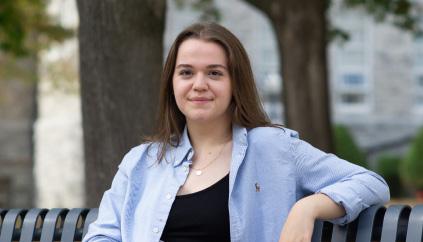
Editorial opinions expressed in The Journal are the sole responsibility of The Queen’s Journal Editorial Board, and are not necessarily those of the University, the AMS or their officers. 190 University Ave., Kingston, ON, K7L 3P4 Email: journal_editors@ams.queensu.ca
Please address complaints and grievances to the Editor in Chief and/or Managing Editor.
The Queen’s Journal is printed at WebNews Printing Inc. in Toronto, Ontario.
Contents © 2023 by The Queen’s Journal; all rights reserved. No part of this publication may be reproduced without prior permission
Editorials The Journal’s Perspective EDITORIALS Friday, OctOber 6, 2023 queensjOurnal ca • 9
JOURNAL
THE QUEEN’S
of The Journal.
ILLUSTRATION BY ARDEN MASON-OURIQUE
Queen’s students need to give back to Kingston’s prisons
QCSV facilitate connection between prisons and local community
TATUM MALONE
Contributor
This first story appeared online on Sept. 29.
Venturing outside of the Queen’s environment to volunteer allows students to contribute to community upkeep and growth, particularly as we move from the educational realm into the broader landscape of adulthood and civic responsibility.
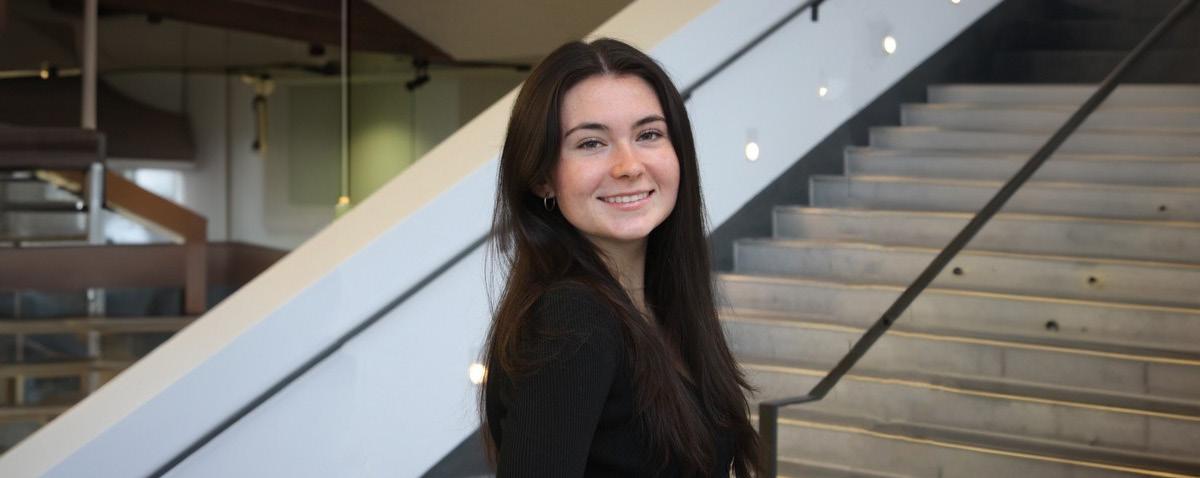
This is especially important regarding the incarcerated demographic, who are often cast aside. Understanding and supporting the functionality of the criminal justice system is essential to its continued improvement, something that’s particularly relevant in Kingston.
For nearly two centuries, the City of Kingston has been associated with criminal incarceration, earning it the moniker “Prison Capital of Canada.”
With nine operational correctional facilities with varying security levels in the Kingston region, a large population of criminal offenders resides within our community, underscoring the pressing demand for rehabilitative initiatives. The collective stated capacities of these facilities is just over 2,500. With approximately 14,500 individuals incarcerated nationwide, Kingston can house roughly up to 17.2 per cent of Canada’s prison population.
Of several necessary rehabilitative measures, one crucial need for the rehabilitation of incarcerated individuals is engagement with volunteers.
Founded in 2019, Queens Correctional Service Volunteers (QCSV) is a student-run
organization that collaborates with Kingston prisons to provide much-needed support for inmates. QCSV was created with the purpose of advocating for the equitable rehabilitation and reform of Canadian offenders, assisting with preparing individuals for a safe, gradual, and structured return to society.
To achieve this mandate, the club offers support to inmates through educational workshops, organizing events in the institutions, and talking one-on-one with offenders. Volunteering in a prison can be incredibly daunting.
In my first year, I worried I’d regret working with QCSV because I felt overwhelmed with the responsibility of providing support for offenders. QCSV eased my fears by its extensive training process.
All QCSV volunteers are given extensive training prior to entering any prisons, and are provided education on the realities of the incarcerated experience. Volunteers receive security clearance through the Correctional Service of Canada (CSC) prior to engaging in volunteer work.
Once inside prisons, volunteers are typically met with smiling faces from offenders who are excited to see them.
Stigma about incarcerated individuals engenders a general fear of inmates, often based on unnecessary prejudice and misinformation. Portrayed by the media as dangerous and violent, these negative portrayals reinforce the idea that inmates are immediate and dangerous threats. This directly harms the lives of offenders and their families—even once released from prison.
While crime is a public concern, overemphasis on the so-called danger of the offenders diminishes their humanity and leads to unnecessary fear and polarization within communities.
In my own experience working with inmates, I’ve never felt uncomfortable or unsafe. Inmates
welcome all volunteers’ efforts and friendly, genuine interaction.
Incarcerated offenders are among some of the most marginalized people in society, and empathy and understanding are things they rarely receive. Showing kindness to offenders is a simple gesture that acknowledges their humanity, allowing offenders to remain hopeful about the future while seeking both personal and professional development during their time incarcerated.
Most inmates simply want companionship while incarcerated, and conversations usually revolve around surface-level topics like favourite foods, pop culture, and the weather. Incarceration isolates offenders from society, and connection with volunteers on sometimes trivial topics brings inmates a sense of comfort and normality.
Offenders are more likely to be interested in interacting with volunteers than correctional staff, as volunteers aren’t involved in their day-to-day lives in the same way. By engaging with people not directly involved in their policing and surveillance, offenders feel more at ease in building connections.
Volunteering in prisons also helps meet government goals in reforming prisons.
Implemented in 2019, Structured Intervention Unit regime (SIU) was established by legislation aiming to decrease the use of solitary confinement in Canadian prisons. The legislation stipulates offenders removed from the general prison population are legally required to receive two hours of meaningful human contact every day, and offered a minimum of four hours out of their cells every day.
CSC employees are stretched thin and can’t always accommodate every offender. Staff may encounter challenges in guaranteeing the fulfillment of these daily necessities for all inmates, particularly in the face of inmate conflicts and the ever-shifting
population under their care.
QCSV’s phone call program in partnership with the SIU allows offenders to receive the allotted two hours of daily meaningful contact, while providing them with a record of good behaviour. A well-documented record can help inmates demonstrate their commitment to rehabilitation and personal accountability, which can have a positive impact on their incarceration status.
By alleviating some of the stress CSC employees endure, QCSV helps ensure offenders receive adequate support. Without QCSV, there’s minimal volunteer interest for these facilities, making QCSV’s continued presence crucial. Meaningful human contact is something that’s essential to the maintenance of physical and mental health, and a right inmates shouldn’t be denied.
In addition to providing companionship to inmates, QCSV volunteers provide educational and skill-building workshops that help inmates acquire new knowledge or practical skills that can be valuable upon reintegration into society. Some of these workshops include financial literacy, mindfulness, resume building, and writing skills.
The offenders come to lessons engaged and excited to bring knowledge they can contribute to the group. Offenders help to build upon the workshops QCSV creates, allowing sessions to better suit the needs and interests of everyone involved.
This reciprocity in learning is powerful for both the offenders and workshop givers. After spending hours in class or in the library, it’s refreshing to hear non-academic perspectives and learn lessons from those with different backgrounds.
These workshops are a great experiential learning opportunity for students interested in pursuing careers in the criminal justice system or education. Offenders
often provide volunteers with candid information about their experiences inside the criminal justice system, which helps QCSV members better understand how to build stronger relationship between students, inmates, and the Kingston community.
During the holiday season, QCSV makes dedicated efforts to offer comfort and support to offenders—many of whom are placed far from their families during this time. Offenders are often moved to different facilities across Canada throughout the duration of their sentences—most offenders QCSV works with aren’t actually from Kingston.
The benefits of volunteering with QCSV and in Kingston correctional institutions are endless. This isn’t to say this type of work is easy, nor that trepidation isn’t a valid response.
Through my involvement with the club, I’ve directly observed the profound impact of correctional volunteering in altering prejudices about criminal offenders and positively transforming the lives of both offenders and volunteers. As students, we often take for granted the support we receive from the surrounding Kingston community and don’t do our part in giving back.
Getting to work with the QCSV team allows me to collaborate with like-minded individuals who share a passion for community engagement and rehabilitation initiatives.
It’s essential for students to get involved with their community. It will lead to an amazing journey of learning, both about the world and one’s own identity.
Tatum is a fourth-year Con-Ed student.
OpiniOns Your Perspective OPINIONS 10 • queensjournal ca Friday, october 6, 2023
Tatum encourages students to join QCSV.
PHOTO BY HERBERT WANG
Kitchener-Waterloo Symphony’s bankruptcy threatens classical music legacy
arts, creativity can thrive through many mediums. Some ideas may be best expressed through visual works such as paintings and contemporary sketches, while other artists may communicate better through interpretative dance.
NOAH LEE Staff Writer
We aren’t in the 1750s anymore, and classical music isn’t as popular as it once was. Despite this obvious observance, it was incredibly heartbreaking to hear the Kitchener-Waterloo (K-W) Symphony filed for bankruptcy.
On Sept. 21 the K-W Symphony filed for bankruptcy. Even still, classical music plays an incredibly important role in maintaining the rich and diverse cultural scene across Canada.
Founded in 1945, the K-W Symphony Orchestra was the third largest in Ontario, employing over 50 musicians and around 17 staff. The orchestra was part of the community for 78 years.
Unfortunately, the K-W Symphony hasn’t been in a particularly strong financial standing for several years.
According to the K-W Symphony’s registered charity information returns, the orchestra was operating under very slim margins.
One sign that an organization is struggling to fulfill its obligations to creditors and is heading for bankruptcy is asset deficiency. This refers to when assets exceed liabilities. The K-W Symphony had been experiencing this
Queen’s commerce alumni grapples with being a double minority in debut book
SUZY LEINSTER
Assistant Arts Editor
The racial and gendered disparity in the business realm is clear when one in 87 white men will hold an executive position at a major tech company, while only one in 285 East Asian women will
phenomenon since 2018.
The orchestra’s reliance on government funding doubled after the pandemic, and after Canada lifted lockdown restrictions, donation revenues in 2022 returned to half of what was reported pre-pandemic.
In 2021, classical music made up only 0.9 per cent of music streams in the United States, while R&B and hip-hop racked in nearly 30 per cent of streams. This points to what some might say is a falling relevancy of classical music.
However, what is often neglected in these discussions is the importance of classical music as a fundamental stepping stone in bringing us the most recognizable musicians we hear of today.
Charlie Puth learned the piano at the age of four, and Lady Gaga started playing the piano at the same age. Elton John began formal piano lessons at seven. While classical instruments aren’t the only
hold a similar position within their lifetimes. Wong faced this reality first hand in her career and on Queen’s campus.
Released this year on Amazon, the debut novel You Don’t Have to Look the Part: How East Asian Women Thrive as Entrepreneurs, written by Winnie Wong, Comm ’11, examines the barriers of being a double minority in the world of CEOs and venture capitalists.
“I wrote the book to better understand the issues and make an impact and really figure out how we can better support East Asian women in their path towards entrepreneurship and their path towards financial freedom,”
entry into the wonderful world of music, they have acted as a proxy for some of the biggest names today. Some may raise an issue with classical music as an elitist artifact from a different time which ought to fade into obscurity. But many barriers to entry into the world of classical music have been lifted in Canada.
Scholarships for families who can’t afford to give their children music lessons are available through organizations such as the Canada Music Academy, whose mission is to ensure every child has access to the gift of learning music.
In an interview with The Journal, Founder and Director of Canada Music Academy Samia O’Day spoke to the steps her school has taken to integrate representation as a pillar to their operational thesis. The school teaches in over 40 different languages, with a core philosophy of telling people of any background that they belong.
“If we could just get people to approach [music] like they approach sports, it would make it very accessible and very fun. For kids, it could be transformational,” she said.
MusiCounts, a Canadian music education charity, provides funding and grants to ensure children can access musical instruments through schools and community organizations.
The late K-W Symphony gave economically disadvantaged children the opportunity to receive music lessons on orchestral instruments through their Bridge to Music program.
Sheet music can also be costly, but it’s now possible to get your hands on virtually any sheet music for free. The International Music Score Library Project, or IMSLP, is a free website for sheet music in the public domain.
The arts are, and always should remain a vibrant realm. In the
Classical music is another one of the mediums where creative ideas can prosper. Classical music and musical compositions have traditionally offered a canvas of works used by musicians to express their emotions.
A similar story to that of the K-W Symphony occurred when Orchestra London Canada filed for bankruptcy in 2015. In its place, London Symphonia vowed to carry on the orchestral tradition as the only professional ensemble currently offering a full season of orchestral music in London, Ontario. In a poetic sense, London’s symphony orchestra experienced a phoenix-like rebirth.
Perhaps such kind fate is in the future of the Kitchener-Waterloo region. Until then, musicians have set up a GoFundMe page for those impacted.
In the meantime, I implore you to consider supporting your local orchestras and classical music scene. Even if it’s not your usual cup of tea, I’d invite you to try it. If finances are an issue, here at Queen’s, we get steeply discounted tickets to most concerts at the Isabel Bader Centre.

Worst case, you’ll support local musicians and the arts—best case, you’ve found a new way of appreciating the human experience.
The bamboo ceiling for East Asian women in entrepreneurship
Wong said in an interview with The Journal.
Wong traces her journey from Queen’s, Institut Européen d’Adminstration des Affaires, and living unemployed in Singapore to show how the lack of diversity in the commerce world reflected moments in her life.
In November 2021, Wong was laid off from her job. With her savings, she hiked the Swiss Alps, meditated, and reflected on what she wanted to achieve in life. She realized teaching had always been important to her and became an adjunct professor at the SP Jain School of Global Management.
When glancing back at her experiences, the most compelling moments in her life looked at the underprivileged women who were technology entrepreneurs. She looked at her current living situation in Singapore, one of the wealthiest countries in the world, and saw domestic servitude among other residents. This is when foreign domestic workers cook and clean a person’s home for money.
Wong never experienced home servitude in her hometown of Toronto, she found the class disparity jarring.
“I realized very quickly that not everyone is born equal and that wherever you’re born and who your parents are affect your trajectory in life more than anything in the world,” Wong said.
Wong volunteered at an organization to teach foreign domestic workers financial literacy and entrepreneurial skills to help move them out of poverty. She chose an East Asian lens because she wanted to relate to these women and understood each marginalized group experiences its own barriers.
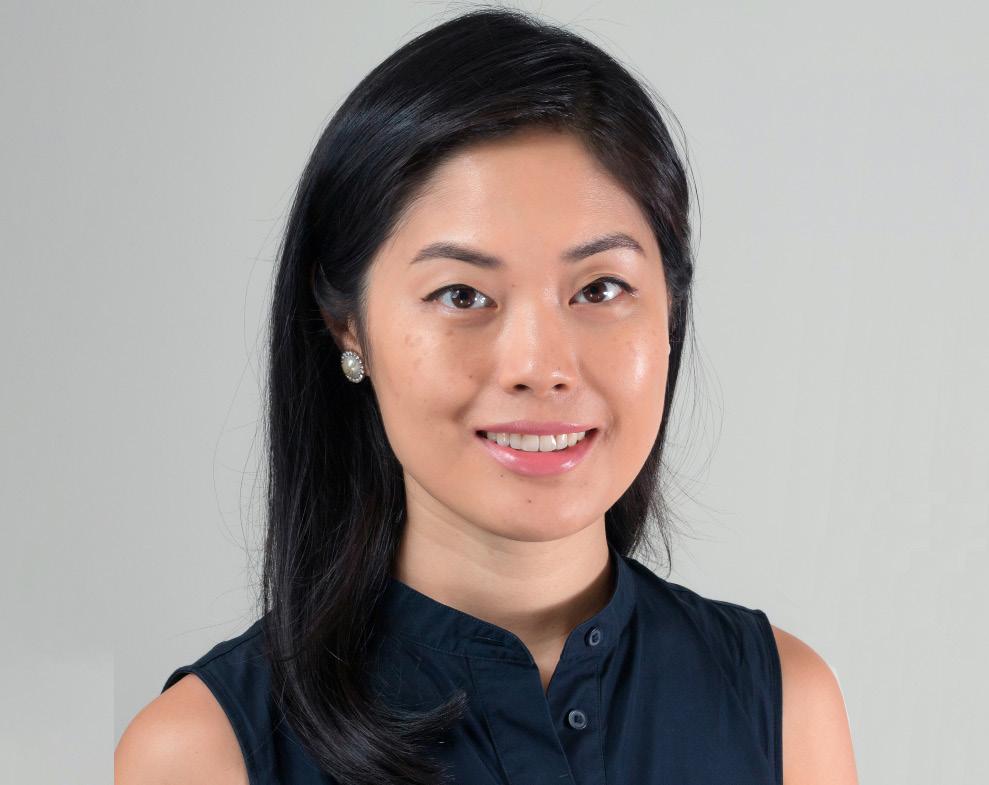
To explain the shift towards creating a diverse business culture, Wong used Jess Lee, the co-founder of Polyvore, and an East Asian woman as an example.
Polyvore is designed to allow the user to sell and customize outfits on a Pinterest-type platform. Lee’s success allowed her to become the first female venture capitalist at one of the largest firms in America, Sequoia Capital.
InSequoia’s44yearsofoperation, they never had a female partner. However, Wong said due to Lee’s diversity in the investment landscape, Lee could access different types of entrepreneurs.
“Within the venture capitalist industry, 40 per cent come from Harvard, Wharton, and Stanford, if you haven’t gone to one of these top business schools, it’s very challenging to find someone who’s going to invest in you,” Wong said.
Venture capitalists are usually men, according to Wong, because they have fewer hurdles with respect to maternity, climbing the corporate ladder, and access to education.
“I think I identify with a lot of [women entrepreneurs] in terms of giving back. [The book] is one example where I’m giving back. I’d love for people to learn about my experience as an East Asian woman going to school at a predominantly white school called Queen’s University, which is a very traditional school as well,” Wong said.
Continued on queensjournal.ca/arts
The importance of a vibrant classical music scene can’t be neglected
The K-W Symphony brings enriching culture to students.
PHOTO BY HERBERT WANG
Wong talks intersectionality in business. SUPPLIED BY WINNIE WONG Arts
Friday, OctOber 6, 2023 queensjOurnal ca • 11
ARTS
InEng builds community for Indigenous engineers
Engineering students are very busy, and with their background in science, might not feel they can contribute to the in-depth political or cultural conversations happening in social settings.
Mikella Schuettler
Assistant News Editor
Faculty-led initiatives at Queen’s work to support Indigenous students, but the university has yet to achieve Indigenization in its STEM programs.
Indigenous Futures in Engineering (InEng) began in 2011 and was lauded by the Queen’s Truth and Reconciliation Task Force as an exemplar of Indigenous programming at Queen’s. InEng engages Indigenous engineering students, building a community while providing them with academic supports to succeed, but InEng Director Melanie Howard, ArtSci ’95, Ed ’98, cautions against viewing inclusion as Indigenization.
“What I hear a lot, even though we do have the services, is that [Indigenous students] feel very alone. In a program like engineering, Indigenous representation isn’t high,” Howard said in an interview with The Journal
Many years ago, Howard noticed a need for this community after a conversation with a colleague at Four Directions Indigenous Student Centre that highlighted engineering students’ underutilization of the centre’s services.
For Howard, this came as no surprise.
of
“If you’re a first-year engineering student doing physics and calculus, and you’re encountering a very impassioned discussion on Indigenous feminisms, you’re going to be like ‘I don’t even know,’” Howard said.
Howard’s solution was academicsbased community building, where students could come together and share their love of STEM. InEng hosts “Transition Week”—an on-campus orientation week where students can meet each other—and provides individual guidance and tutoring for Indigenous students in the Faculty of Engineering.
In 2021, InEng branched out to create STEM Indigenous Academics (STEMInA) funded by three faculties—Arts and Sciences, Health Sciences, and Engineering—to support Indigenous students in all STEM programs at Queen’s.
Howard’s job is to connect students with opportunities to help support them as engineers, in hopes it will bring more Indigenous students into STEM.
“When there are barely any engineers who are Indigenous, it’s really hard for kids to know about the profession, let alone see themselves in the profession,” Howard said.
That said, Indigenous students
aren’t a monolith, and don’t all need the same supports. A First Nations student from a remote community who took calculus online has very different needs than a Métis student from Toronto, Howard explained. It’s important to get to know each student personally.
The crowning achievement of InEng came last year, when their team won NASA’s First Nations Launch competition as the only Canadian team. This year, the students have split into two teams, which both have hopes of entering.
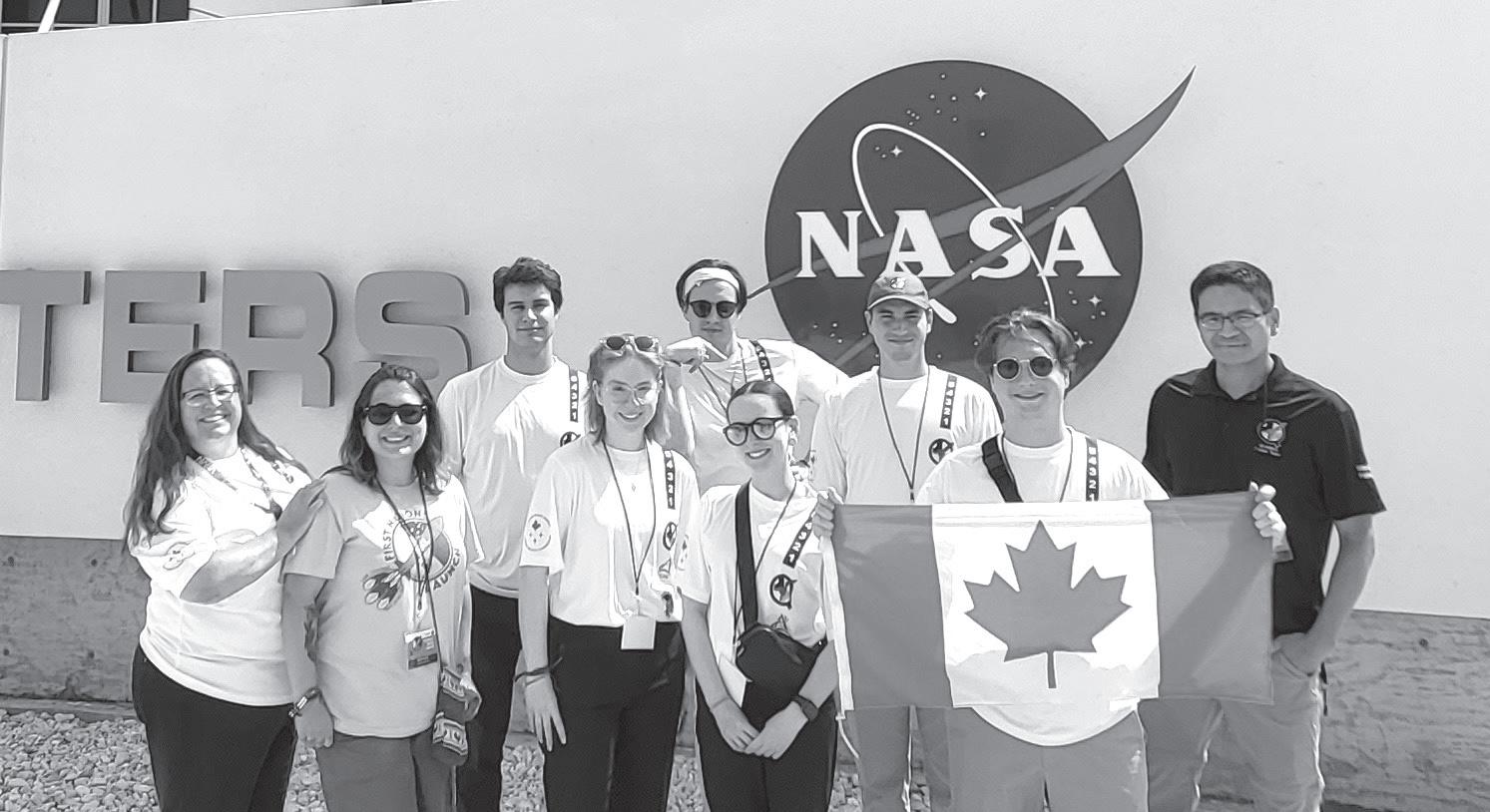
Though proud of how fair they’ve come, Howard cautions against seeing InEng’s success as Indigenization.
Indigenization, as defined by the Queen’s Office of Indigenous Initiatives, is including Indigenous ways of knowing in education through traditional and cultural knowledge. As opposed to inclusion policies, it doesn’t seek to assimilate Indigenous people within an institution, but to create a wider consensus on what “counts” as knowledge.
“Just adding Indigenous students to engineering classes doesn’t Indigenize the profession,” Howard said.
InEng is an inclusion program supporting Indigenous students in STEM, but isn’t focused on Indigenizing the engineering program itself.
According to Howard, there are many barriers to Indigenizing engineering
“Your head isn’t designed to have any sort of extra weight on it. The way XR works right now is by basically strapping a brick to your face, so a lot of companies are working on slimming that down,” Tuckwell said.
SUPPLIED BY MELANIE HOWARD
compared to other programs. Indigenizing engineering classes isn’t always practical. In order to get accredited, engineers need a set amount of class hours in highly specific areas, and these classes are regulated.
“We can’t Indigenize everything necessarily, like Indigenizing long division isn’t always possible, and kids still have to learn that,” Howard said.
Though complex, Indigenizing STEM subjects is a worthwhile endeavour. For Howard, Indigenous knowledge systems have consistently been pushed aside as myths or legends, instead of insight into scientific phenomena.
“The sciences look at really critical questions on things like climate and environment, and Indigenous knowledge has, for a very long time, been pushed aside in favour of a Western viewpoint,” Howard said.
For example, Indigenous communities have long used cultural burning, or controlled fires, as a land management tactic. However, this knowledge has been pushed to the side, resulting in a buildup of fuels across the Canadian landscape. The summer of wildfires is a testament to what can happen when Indigenous perspectives aren’t taken into account.
Indigenous traditional knowledge is the “missing piece” in our scientific understanding, Howard said. This knowledge can help us understand how our climate has changed over thousands of years, or even track astronomical events.
Violetta Zeitlinger Fontana Business, Science, & Technology Editor
As extended reality (XR) develops, it has the possibility to engage in virtually every sector in the coming years.
XR encompasses virtual reality (VR)—a fully immersive, 360-degree digital world—augmented reality (AR), which allows you to interact with the physical world, with digital overlays, and mixed reality (MR)—an umbrella term for anything mixing the virtual and physical worlds in some way.
In its current form, XR is most widely used in the gaming industry. VR headsets—such as those developed by Meta and Sony—provide a completely immersive and highly interactive experience, making XR an ideal gaming technology.
While we think of gaming as solely entertainment-based video games, the EQUIS lab is developing exergames—digital games that incorporate physical activity—and educational games that use AR to bring topics to life in the classroom.
“Every new technology needs something to drive it and generate initial interest so people are purchasing, and developers are developing. Games are the driver for mixed reality right now,” said Nicholas Graham, computer science professor and
EQUIS lab director, in an interview with The Journal
With Meta and Apple making large investments into XR development, the market is expected to surpass $197.3 billion in 2023. As this expansion occurs, more widespread applications are beginning to emerge.
“We have the opportunity now with VR, to have remote meetings where everybody is brought into a shared [virtual] space and you see them, you can use your arms to gesture and point at things, you can have shared artifacts you’re working on,” Graham said. “You have a sense of the presence of other people who are around you.”
In the arts, VR allows for virtual tours of famous museums, while AR is creating interactive experiences within museums. XR also improves accessibility and connects people globally as opportunities emerge for live translation.
“The way I see it, XR is a replacement for almost anything you could do with [current] technology,” said Hugh Tuckwell, CompSci ’26, and Queen’s Extended Reality Club (QXR) founder and co-chair, in an interview with The Journal.
XR headsets are becoming more popular, but headset manufacturers struggle to balance comfort and cost.
Tuckwell said VR headsets contain high-resolution displays that are super pixel-dense combined with internal and external cameras, lenses, speakers, and more. Not only does this complex construction make it very difficult to condense into something that resembles a pair of glasses, but it makes the headsets expensive to manufacture.
As the technology continues to develop, other fields are extensively researching potential XR applications, including medical simulation training.
These trainings are being used to help students practice certain procedures or provide clinical teams with high fidelity scenarios to develop teamwork, leadership, and communication skills. Students can practice and learn without putting patients at risk in real clinical environments.
The Clinical Simulation Centre (CSC) in the Faculty of Health Sciences at Queen’s is investigating the role AR has in improving medical simulation training.
“We can teach some very fundamental skills in our current simulators, but they just aren’t realistic enough to develop true expertise and the high-level cognitive skills someone needs to work in a complex clinical environment,” Medical Director of the CSC Dr. Daniel Howes said in an interview with The Journal AR creates an opportunity to
bridge the disparity of realism that exists between the modelled scenario and its real-life equivalent, Howes explained. Inanimate mannequins are overlayed with holograms of patients to give “life” to the mannequin, allowing students to practice interactive tasks with a conscious patient. AR makes the simulated patients more realistic by replicating signs and symptoms that would be observed in a real patient.
The CSC’s resources aren’t limited to medical students. The simulation labs welcome students from across the faculty including nursing, respiratory therapy, and physiotherapy students.
“They train as a team because we have to work as a team in the end. It doesn’t make sense that everybody goes off and does all their learning by themselves, and then comes together and tries to work with the team. This is a great way to bring everybody together and do interprofessional training,” Howes said.
Given the cost of clinical simulation technology—current mannequin simulators cost over $100,000—Howes is excited to see AR advancements decrease medical simulation expenses.
Despite its numerous beneficial applications and exciting potential, not everyone sees XR positively. Tuckwell said some people think immersive VR worlds—like the Metaverse—cause individuals to miss out on the real world.
“I think [technology’s interference in social interactions] is just sort of a natural extension of communicative technology at this point. I don’t know if there’s a way around it,” Tuckwell said.
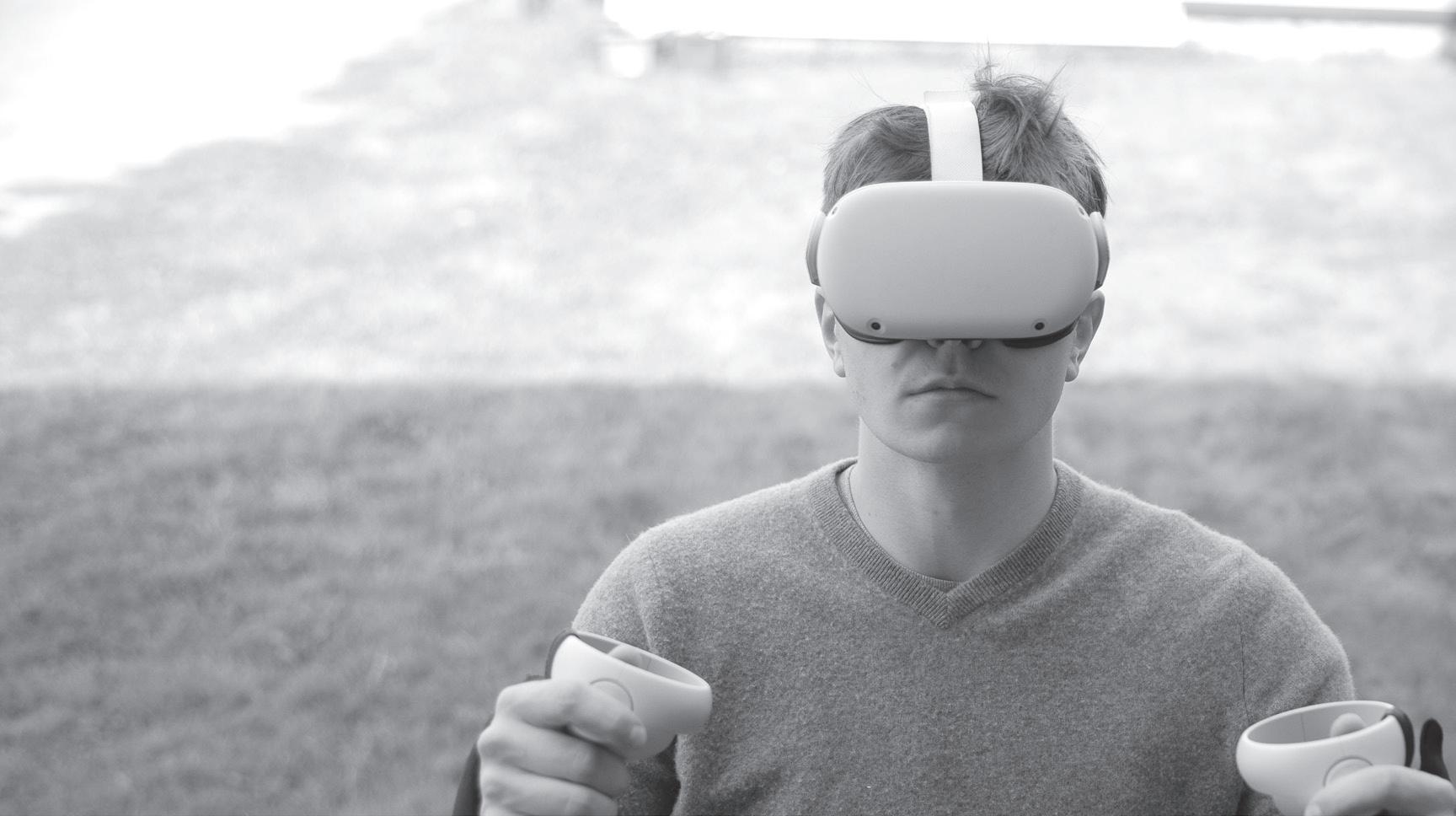
Indigenization of STEM requires more than inclusion initiatives
The future
extended reality is endless
Extended reality development takes shape at Queen’s
InEng helps Indigenous students find community through academic programming.
XR technology provides unique opportunities for entertainment and education.
Business, science, & Technology 12 • queensjournal ca Friday, october 6, 2023
PHOTO BY HERBERT WANG
Women’s sports into the spotlight: part one
RORY STINSON Senior Sports Editor
Equality in sports isn’t always present, especially in women’s athletics. Being offered less opportunities and facing disrespect are just two of the inequalities women face in sports.
In the first installment of the Women’s Sports Into the Spotlight series, The Journal interviewed Queen’s Field Hockey Goalie Jennie Izatt, ConEd '24.
As a varsity club, the Women’s field hockey team plays home games on Tindall Field. Despite playing on a top-notch facility, the Field Hockey team faces barriers to accessing the space other teams don’t.
“We’re really not taken seriously by our peers,” Izatt said. “When it comes to field time, we have to pay to be on the field.
“We think it would be good for visibility and stuff, but it actually just ends up with people not getting off the field when we’re practicing,” she said. “It’s really difficult because in the most extreme cases, it’s before a game when we’re having a game warm up and people are trying to use our field.”
Though the effect of this on the team can be major, that same desperation isn’t always met with sympathy.
“We speak out about it,” Izatt said. “It’s never met with ‘Oh, I understand and I respect your
Examining Women’s Field Hockey at Queen’s
space, and I respect your time, and I respect your sport.’”
Izatt made it clear woman athletes aren’t fighting for better facilities to play in, but instead are advocating for the same opportunities often offered to their male counterparts.
“If we can still accomplish the same things [now], what could we do if we got the same opportunity?” Izatt said.
Izatt said Queen’s Athletics & Recreation (A&R) has recently done a better job at promoting the field hockey team through their social media pages. By this time last year, there were no individual posts highlighting the team on Instagram, and only a few photo albums that mentioned the team in their “Upcoming Games” posts.
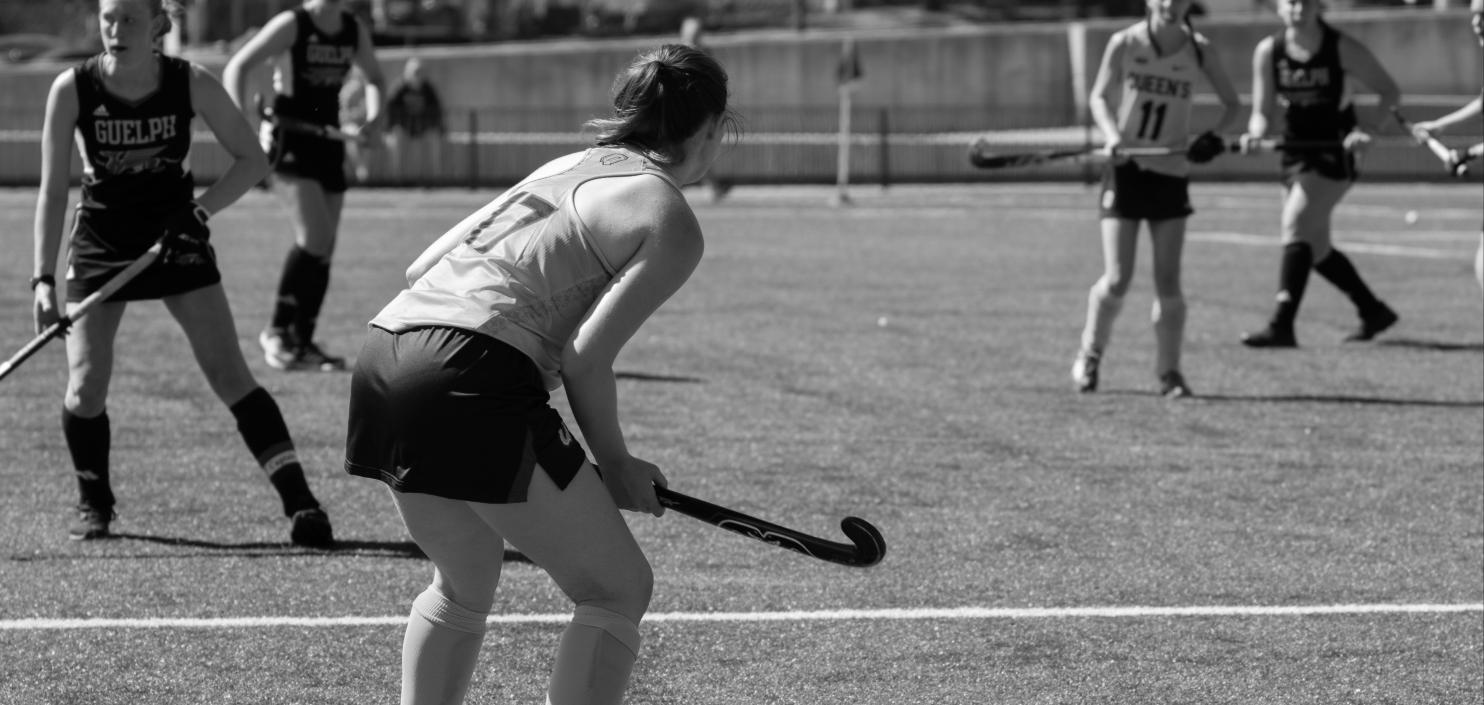
This year, early on in the season, the team was included in a “Varsity Club Weekend” post. This has been increasing with time.
“The Gaels Instagram page does a much better job than they have,” Izatt said. “It looks good. It looks like they’re trying, and I really appreciate that.”
According to the Queen’s 2020 Student Applicant Census, 61.9 per cent of Queen’s undergraduate students are women. Izatt hopes the number of women increases in university athletics.
“There’s the space for women
Guelph Gryphons snap Queen’s undefeated record
AIDAN MICHAELOV Assistant Sports Editor
This story first appeared online on Oct. 3.
Queen’s Men’s Rugby are no longer kings of the OUA as the Guelph Gryphons tore the Gaels’ undefeated record away on Saturday.
The Gaels and Gryphons went head-to-head at Nixon
to take up their proportional positions in sports and in entertainment,” she said. “Like Intramurals, it’s just not seen.”
Izatt wants to emphasize the importance of showing up for your friends. Showing up to games to support varsity clubs, even if you aren’t an athlete yourself.
“You appreciate your friend’s contribution to sport and athletics and building community,” she said.
Field hockey is the only varsity club that’s only offered to women at Queen’s. For Izatt, exemplifying the power of womanhood helps create competitive and secure spaces for women in sport.
“My field hockey club accomplishes the same big values when it comes to creating a safe space for people, creating a place where we can accomplish the same goals that the football team does,” she said.
Without a fancy stadium and a large fanbase attending their games, Izatt emphasized the field hockey team still shows up to games and practices. Though some people don’t know the sport exists at Queen’s or have never seen a professional athlete like them, Izatt and her teammates continue to go out and play.
Field on Sept. 30, fighting to defend their undefeated season record.
The Gryphons got off to a hot start, forcing a turnover and then swiftly scoring a try to put themselves ahead of the Gaels early on.
While Jacob Merkur, ArtSci ’25, from Vancouver answered with a try of his own, the Gryphons came
back, powerfully scoring three more tries.
Before the end of the first half, James Webb, a Comm ’25 student from Toronto, was able to score a try to decrease the point deficit. Webb went two-for-two on conversions, helping the Gaels inch their way back into the game.
By the end of the first half, the Gryphons led 24-14.
The second half of the game was offensively lackluster for the Gaels. Despite setting Webb up for a penalty kick, the relentless effort of the Gryphons forwards was enough to carry them past the try line for another two tries.
The final score was 34–17 for the Gryphons.
Although the Gaels relinquished their undefeated status, the afternoon wasn’t all dark. The Gaels sported their National Day for Truth and Reconciliation jerseys, which were designed by local artist Tsiokeriio (Diio) Hagen of the Tyendinaga Mohawk Territory.
The jerseys represented common values shared between the rugby team and the Haudenosaunee community. Team Captain Eric Godden, Sci ’24, expanded on the process of establishing a partnership with Hagen and Amy Brant, who works with the Office of Indigenous Initiatives on campus.
“Putting on these jerseys means a lot for the team,” Godden said. “It’s great to see the community engagement with this, seeing everyone coming out to the field today because that’s what we’re trying to strive for in making this community effort.”
Jacob Merkur, ArtSci '25, had his first start of the season and was a true bright spot during the game against the
Gryphons. He made numerous stops as the Gaels’ last line of defence and ran in his first try of the season.
Despite the result, Merkur felt the Gaels were prepared to beat the Gryphons but couldn’t put their plan into motion.
“I think we prepped as well as we could, we just didn’t come out on top today,” he said.
There was a bit of deja vu for former Gryphon, Evan Raymond, Law ’25. Raymond played with Guelph from 2019-22, where he held the positions of lock and second row.
Although it was a scrappy game and he sustained an injury, Raymond mentioned it’s all love at the end of the day. He emphasized although rugby can get heated, there’s always a sense of camaraderie when it comes to sport.
“It was [an] all-good, clean, hard-hitting game,” he said. “But you know, when I went down, I hurt my elbow, and they helped me off. It’s all love at the end of the day, and there’s no real hatred.”
Although the Gaels battled hard, Head Coach David Butcher saw many areas for improvement he hopes to patch up before next week’s game.
“I think there’s a number of things that are just not getting hit at the minute,” Butcher said. “We’re going to have to look at ourselves and see how we can support the players.”
The Gaels will face off against the Brock Badgers in St. Catharines on Oct. 7.
journal_sports@ams.queensu. ca
Jennie Izatt shares her experience being a woman athlete at Queen’s.
PHOTO BY JOSEPH MARIATHASAN
SportS Friday, OctOber 6, 2023 queensjOurnal ca • 13 SPORTS
Chisari breaks one football record, reaches second-place for another
Creating history for the brotherhood
RORY STINSON
Senior Sports Editor
A 289-yard run and five-touchdown game broke a longstanding football record for running back Jared Chisari, MS. ’25, last weekend.
On Sept. 30, the Gaels travelled to Toronto where they beat the York Lions 87-0. Chisari set a new Queen’s Football program record with five touchdowns in a single game. He also now holds the second-place spot for single-game rushing yards in Queen’s history.

“It’s an honour. There’s a lot of really great players up on that wall,” he said at a pre-game press conference. “It’s definitely a special moment to be a part of such a long history and a very cherished one. It’s really a great feeling.”
First established by Jim Young in 1964, the touchdown record was previously four touchdowns in one game. Since then, four players have tied Young’s record, including current running back Anthony Soles, ArtSci ’24, who tied the record last season.
This is Chisari’s second season with the Gaels. Last
RORY STINSON
Senior Sports Editor
Honouring the resilience, strength, and legacy of the Indigenous peoples was what Queen’s Athletics strove to do on National Day for Truth and Reconciliation.
The Men’s Rugby team wore commemorative jerseys at the Sept. 30 game on Nixon Field against the Guelph Gryphons. The jerseys were designed by local artist Tsiokeriio (Diio) Hagen from Tyendinaga Mohawk Territory, with support from Amy Brant of the Office of Indigenous Initiatives and members of the rugby team.
They used this as an opportunity to learn more about those who were native to the land Queen’s is situated upon.
“A lot of great processes have to go into effect for that sort of production. It’s really a full team event and everyone came out to play that game and as it works out, [we] ran the ball a lot.”
The game marked a big win for the Gaels as it was their largest score differential this season. Other touchdowns were scored by Aidan O’Neal, MIR ’24, Anthony Soles, ArtSci ’24, Jaden Blackman, ArtSci ’26, and Josh MacLeod, ArtSci ’25.
Tyler Mullan, ArtSci ’26, was reported by Athletics and Recreation to have played a great game, and scored two field goals against the Lions.
“We have a lot of veteran guys on the offensive line—some really good CFL pick guys who are really great ball players and running behind those guys it’s hard to go wrong.”
The Gaels are 2-3 this season and are sixth in the OUA. Moving forward, Chisari mentioned the Gaels need to play with the same intensity as they did Saturday.
What it takes to be a good captain at Queen’s
Godden and Gibson know what it takes
season he played eight games and had four touchdowns with 644 total yards. This year, at five games into the season, Chisari has scored seven touchdowns and 622 yards.
Chisari credits his team for helping him achieve such success.
“It definitely feels good to rush for that many yards but it’s really a team effort,” Chisari said.
“I think every game from now is a must win, including playoffs and down the stretch, it’s kind of how we are taking it,” Chisari said. There’s a big push coming from Chisari’s record-breaking game for the team.
“For me, as soon as you get on that field you realize it’s bigger than just you, and then it kind of just starts rolling,” he said. “Playing for this team, there’s a real sense of brotherhood.”
Indigenous designed jerseys worn by Men’s Rugby team
AIDAN MICHAELOV Assistant Sports Editor
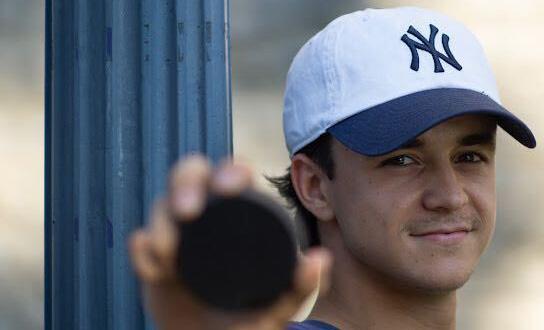
At the heart of every successful collegiate sports team beats the unwavering dedication embodied by their captains. These individuals, often revered by players and coaches alike, play a pivotal role that extends beyond the field, court, or arena.
Being a team captain in collegiate sports is more than just a title—it’s a responsibility that shapes athletes into both formidable opponents as well as outstanding individuals.
At its core, the team captain is the glue that holds the team together. Captains are the ones who lead by example, exhibiting qualities of discipline, dedication, and determination. Their presence transcends physical contributions by instilling confidence in both their teammates and coaching staff, and serving as a beacon of inspiration through victory and defeat.
By fostering a sense of unity and camaraderie, team captains foster an environment where players can achieve personal and athletic development.
Team captains act as mentors, offering guidance to younger players and those facing challenges on and off the field. Their experience and knowledge become crucial assets as they help guide them through the rigorous demands of participating in collegiate sports, whether it be academic stress, personal issues, or game-related pressure.
Men’s Rugby honours Indigenous people through sport
Featuring traditional Haudenosaunee designs, the jerseys represented strength and determination, something that represents Indigenous people and the Men’s Rugby team.
“It’s an honour to put it on. It represents our morals and our values,” Jacob Merkur, ArtSci ’25, told The Journal. “I hope we continue to do something like this in the future.”
Evan Raymond, Law
’25,
spoke about the team donning the jerseys.
“I’m really proud of the team [for] really taking a step forward and incorporating a lot of Indigenous values and moving forward and working with the Indigenous group we’ve been working with to design the jersey,” he said. “We’re looking forward to working with Indigenous groups in the future.”
Eric Godden, Sci ’24, captain of the Men’s Rugby team, never hesitates to praise younger players on the Gaels roster. Each time I interview him, Godden applauds the performance and development of new recruits.
Effective communication is the foundation of any successful team. Team captains excel in this area, ensuring that information flows seamlessly between coaches and players. They’re gifted at fostering open dialogue, encouraging players to voice their ideas and communicate openly with one another. This collaborative atmosphere is capable of
producing innovative approaches to the game.
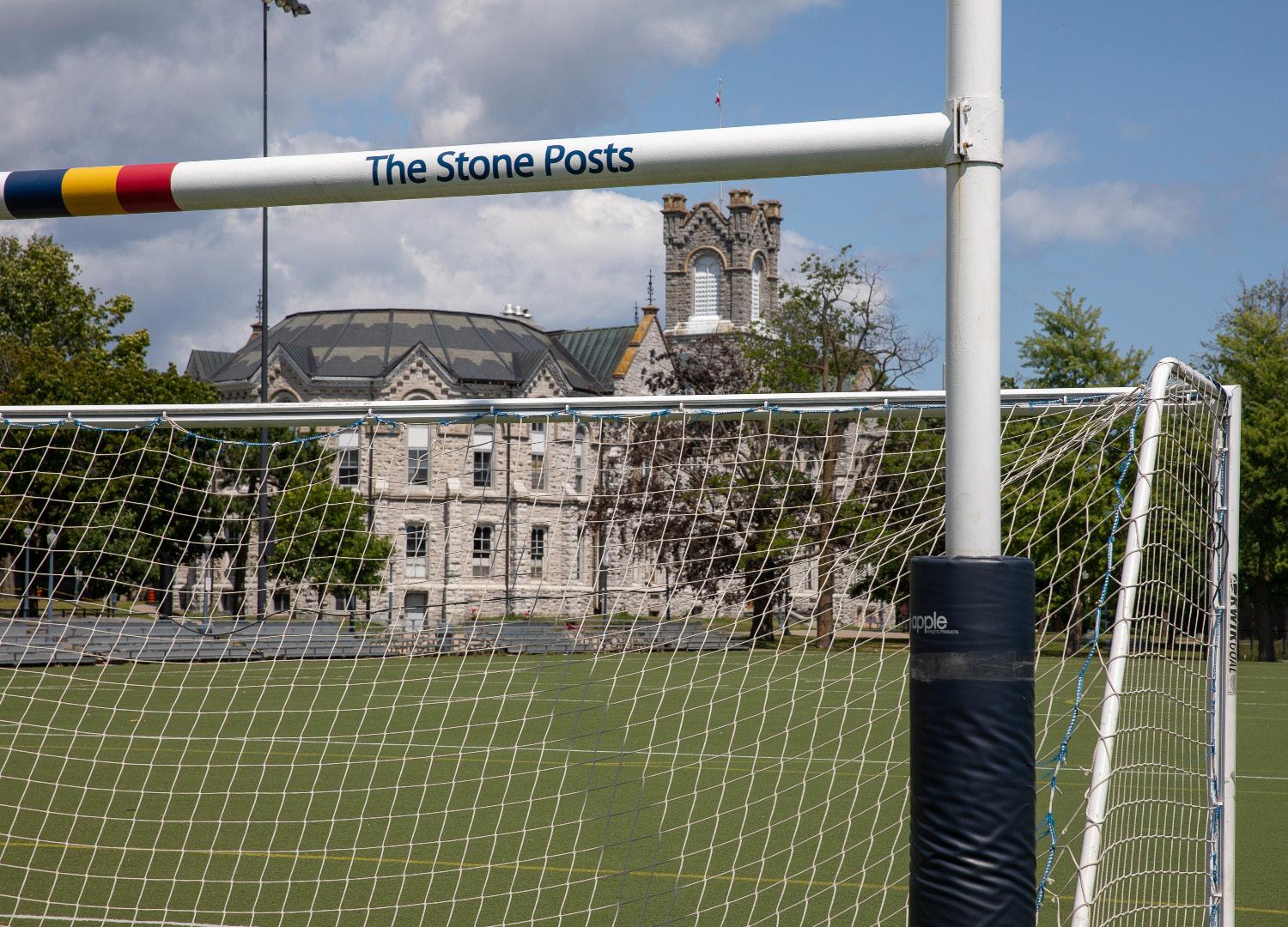
Should any of you find yourselves at a rugby game, team captains Lizzie Gibson of the women’s team ArtSci ’24, and Godden are constantly seen conversing with their coaching staff, relaying concerns and ideas to their teammates and coaches about how to improve the game.
With both of Queen’s rugby teams being longstanding powerhouses in their respective divisions, there’s no challenging the impact that Godden and Gibson have on their team’s success.
Integrity is a crucial attribute of captaincy at Queen’s, and Godden and Gibson both epitomize this virtue. They uphold the values of fair play, sportsmanship, and respect while setting high ethical standards for their teammates and any community members privileged enough to see them in action.
By displaying honesty and integrity, team captains instill a strong sense of pride in their teams.
Last week, during the Women’s Rugby game against the Guelph Gryphons, tempers flared as a Guelph player took a shot at Gibson after the whistle. Gibson laughed, walked away, and clapped as the Guelph player received a penalty card.
Embodying the integrity needed to lead a team, Gibson had this to say regarding the impact flared tempers have on the Gael’s mentality, “You’re gonna come at me like that and get a card? Sure, my team is gonna have my back, and I have theirs,” she told The Journal in a post-game interview. “We’ll take the card all day, and I’ll take the hits, we love that, it fires the crowd right up.”
Representing the integrity needed to lead a team of post-secondary athletes, Gibson’s composure makes her a role model to be followed universally, not just by Gaels athletes.
Overall, captaincy at Queen’s is an esteemed honour. We should continue to celebrate the nature of captains at Queen’s for their unfathomable contributions towards Gaels’ teams and their community.
AIDAN’S ANGLE
JOURNAL
Eric Godden and Lizzie Gibson are the captains for the Men’s and Women’s Rugby teams.
FILE PHOTO
PHOTO BY HERBERT WANG
The men’s rugby team collaborated with an Indigenous artist to design the jersey.
JOURNAL FILE PHOTO
SportS 14 • queensjOurnal ca Friday, OctOber 6, 2023
Chisari had a 289-yard run and five touchdowns on Sept. 30.
The stars are aligning this cuffing season
NOT YOUR HINGE DATE Contributor
With cuffing season on the horizon, let’s see what’s in the stars for each sign looking to cozy up with someone special.
Cuffing season horoscopes
seem interesting to you. Before committing to that coffee date, make sure you won’t be distracted by a last-minute opportunity to jump off the pier.
Aquarius (Jan. 20 - Feb 18)

Your fan club is about to expand Aquarius, but this is going to get to your head quick. You need to keep the evil eye away from you, since potential lovers are hoping to take advantage of you.
Aries (March 21 - April 19)

You like things fast and dirty, Aries, and this makes up a huge part of your appeal. Though a new partner might sound like a great move this season, be sure to think before you make the leap. Aries’ are independent in spirit, and you should keep this in mind before getting someone on your hook.
Cancer (June 21 - July 22)

You’ve got a hard exterior, Cancer, and can sometimes take a while to break out of your comfort zone when getting to know someone new. You’ve got the power to draw people in due to your calming presence, but don’t let your domestic inclinations bore your partner — you don’t have to stay in every night.
Scorpio (Oct. 23 - Nov. 21)

As one of the most misunderstood signs, there’s no surprise nobody gets your carefully curated Hinge prompts, Scorpio. Exercise caution and reveal your intensity slowly to let your next climbing date get to know you at a more digestible pace. The wait will keep things fresh for when you finally venture back to your place ;).
Capricorn (Dec. 22 - Jan. 19)

Get your shit together Capricorn. Pulling back when someone shows you affection and love doesn’t make you indie and cute, it makes you annoying and difficult. This cuffing season, you’ll be caught in a tug-of-war between a thirst for lust, and your delusion of self-actualizing. Go with the lust, trust me.
I know you’re craving stability Aquarius; this might be the month to engage in self-care, and maybe celibacy?
Taurus (April 20 - May 20)

Let the person in your past stay in the past—you’re onto bigger and better things. Be ready to expect fast, sudden, and unexpected temptations and attractions. This is the time to leave all inhibitions at the door. Walk up to that random someone at Ale and lay it all out on the dance floor, or in the bedroom. Beware though, Taurus, November is going to be a mess, a complete rollercoaster of emotions.
Leo (July 23 - Aug. 22)

You love yourself, Leo, maybe a bit too much. But it’s okay given your love life has taken a hit recently. Next time you find yourself in a relationship, think twice about dropping a polyamory bomb on your partner when you’re trying to expand your connections. LinkedIn exists for a reason, babe.
Sagittarius (Nov. 22 - Dec. 21)

You’re adventurous, Sagittarius, and this spontaneity is reflected in your love life. While your charisma draws people to you, your impulsivity pushes them away when plans no longer
Pisces (Feb. 19 - March 20)

Your empathy and kindness are going to pay off big time, Pisces. Get ready to swoon and be swept off your feet by the dreamy figures that enter your life. Everyone is trying to pull you in Pisces, because you’re a snack and a half, and unquestionably relationship material. If you find a non-problematic person, lock them down. This is your season.
Gemini (May 21 - June 20)

Pumpkin spice latte season is your time to shine, Gemini. Get ready for passionate connections with those near you. You’ll be entranced with late night conversations, and secret rendezvous that are elusive and endearing. Gemini, be careful of who you’re getting close with, your life is going to get messy with multiple lovers, and damaged boundaries with friends. An old flame will come running into your life, so get groovy Gemini.
Virgo (Aug. 23 - Sept. 22)

You’re a giver, Virgo, and guess, what? It’s high time to become a taker with your next beau. Scrolling through Instagram, you see your ex-lover with someone older and hotter. You spiral, and the next thing you know you’re analysing Tinder profiles at 3 a.m., thinking you’ve found your future spouse on the forsaken app. Start taking advantage of all aspects of your next person-thing, and lay off the meticulous analysis. It’s a hook-up, and nothing more.
Libra (Sept. 23 - Oct. 22)
You’re a hopeless romantic, Libra, and your biggest virtue is your ability to fall in love with people easily. Instead of falling for the next person who balances you out, focus on reinvesting in yourself. After all, you can buy your own damn vodka cran.

LifestyLe Friday, OctOber 6, 2023 queensjOurnal ca • 15 LIFESTYLE
Relationships aren’t all 50/50
reading “Girl boss, love you.”
SOPHIA COPPOLINO
Senior News Editor
If we’re going tit for tat, I’m owed a lot of tit and I owe a lot of tat.
I cleaned the bathroom, scrubbed the kitchen, mopped the floors, brought the garbage bins outside, giving my roommates the evil eye the entire time. My Cinderella sighs didn’t clue them in, and they stayed on the couch, enjoying crumb-less socks and spotless countertops.
But they also give me their leftovers,drivemetothetrainstation, listen to me complain about work, and in a zillion other unquantifiable moments they let me be the princess of the house.
It’s difficult to say how even we are with each other. Is gas money equivalent to a venti Starbucks coffee? I don’t know, but I shouldn’t keep score. While relationships should be reciprocal, they will never be perfectly balanced at 50/50. Take it from a Libra—I’ve tried.
Instead of attempting to create a ratio of giving in order to receive, my friendships are grounded in the understanding the love will come back around. Love being broadly defined; emotional support, borrowed food, quality time, all facets of friendship.
My friend Maddy is a giver. I use her Nespresso pods in the mornings when I’m in desperate need of coffee. Every time I do laundry there’s a ‘Maddy pile,’ prompting me to return the clothes she lets me snag directly from her closet. I come home from the library to sticky notes on my desk
According to Maddy, she owes me 150 hours’ worth of advice to make up for the 150 hours where I thought we were just hanging out. I like being the friend she confides in, and it’s not burdensome for me to listen attentively to her problems.
My friend Paige is petitioning to change The Journal’s 150 yearestablished publishing schedule. With two nights a week spent making a newspaper, Paige has major beef with my workplace. Monday nights used to be spent watching Love Island and distracting each other from doing anything remotely productive.

The loss of quality time forced our friendship to evolve. We’ve adapted to find new ways to show each other our ongoing commitment to our relationship.
On weeks my inbox is filled with complaints about news coverage, Paige sends me emails, subject lined “GOOD EMAIL.”
because we’re working on Outlook setting boundaries.
As my only successful long-distance relationship, our commitment isn’t even, but it is enduring.
I take little leaps of faith every day that the energy I expend on my friends will circle back around to me, even if it takes a little time. It’s freeing to let go of counting every act. I get to take the long way back around to reciprocity stress free because I know I have, and will continue to, earn my friends’ patience.
Though I don’t buy into love languages, I do believe people show their love in different ways, and likewise need different types of love depending on their circumstances. These individual differences complicate measuring the fairness of friendship so much, and it begs the question of why measure at all.
My relationships with both friends and romantic partners are based in commitment. I understand sometimes I’m giving and other times I’m getting, and it’s not happening all at once. These relationships are reciprocal over time, but they aren’t evenly split.
little things to show me kindness. He’d start conversations about articles I wrote despite me cancelling whatever plans we had to finish writing the story the night before.
The only way I knew how to reciprocate was to open my wallet. All the little things he did amounted to weeks’ worth of dinners, something I couldn’t afford on a student budget. It didn’t matter to him though. He just wanted to spend time together.
me means commitment in sickness and in health, unless you’ve violated subsection 3C.
Unlike your assets, the emotional support you provide your partner is unquantifiable. Weighing the ways you support your partner’s career and sacrifices you make to help them succeed don’t always balance out with how they support you.
A prenup may be your insurance policy or a way of protecting your assets, but for me it limits the value of a relationship. Fitting the entirety of a relationship into decimals and dollar signs—no matter how things are split—doesn’t encompass of the value of my relationships.
With Paige away on her government-mandated practicum, I’m learning to live without someone who has yinged my yang for five years. In her last e-mail, Paige asked if I could feel her love seeping through the computer screen, and that she hoped it was my computer screen and not phone
To outsiders, I am a taker. I run around campus changing plans and won’t sacrifice my evening routine for anyone. I once coerced a boyfriend into playing cards with me in a hospital waiting room all day—simply because I had a cold. My philosophy is I can come to your house, but you can’t come to mine because I don’t want to throw off my laundry schedule.
My ex-boyfriend was thoughtful and always doing
It’s not that I don’t reciprocate affection, or even that I don’t think I should. It’s that the way I choose to show my commitment, and the way significant people in my life recognize my commitment, varies from what you expect to see on screen. I want to give to people I care about, and I never want to feel like my contributions to the relationship, emotional and otherwise, are then. I show commitment wholeheartedly, nothing is held back once I’ve decided a relationship is worth my time and energy.
I wouldn’t sign a prenup, which is an unlikely stance for the daughter of two divorced lawyers. I don’t understand how anyone can pre-emptively decide what their partner will contribute to the relationship. Marriage for
Whatever my romantic situation, I have every intention of contributing emotionally and financially to my partner. Rather than being a money grab, my opinion is rooted in wanting to be equally vulnerable, committed, and willing to support each other when life takes a rockier route.
I saw a post on Instagram telling readers to only fill people’s glasses who never leave your cup empty, and I rolled my eyes. Whoever wrote it must be lonely, on a futile search for someone who has unlimited time and unlimited energy to give.
Sometimes your glass will be lighter than your friends’ or your partner’s. The important part is knowing if you stay at the table, your cup will be filled up again. It’s about commitment to each other, not constant give and take.
Email journal_lifestyle@ams. queensu.ca to contribute to the Lifestyle section
The relationship advice you didn’t ask for
“To outsiders, I am a taker. I run around campus changing plans and won’t sacrifice my evening routine for anyone
“Marriage for me means commitment in sickness and in health, unless you’ve violated subsection 3C
LifestyLe 16 • queensjOurnal ca Friday, OctOber 6, 2023













 Homecoming festivities are two weeks away, taking place Oct. 20 to 22.
Homecoming festivities are two weeks away, taking place Oct. 20 to 22.



























